Faculty Affiliates
College of Arts and Sciences
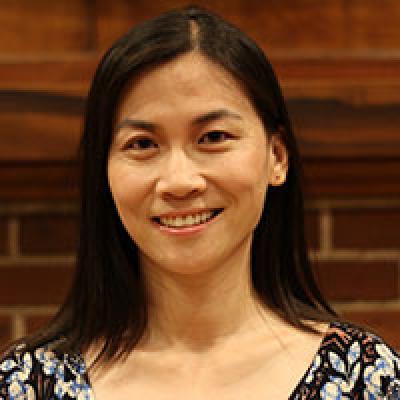
Dr. Hongyuan Cao is an Associate Professor in the Department of Statistics. Dr. Cao earned her Ph.D. from the University of North Carolina–Chapel Hill in 2010. Her research focuses on statistical methods development with applications in social, medical and biological sciences. She has extensive experience in analyzing longitudinal data, survival data and omics data arising from various study designs.
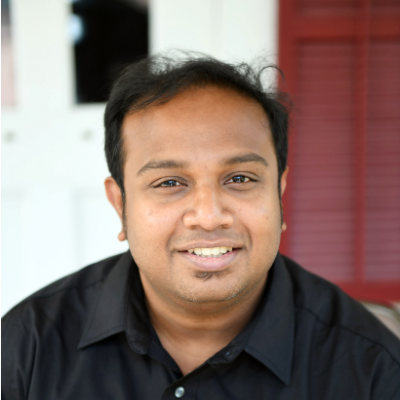
Dr. Shayok Chakraborty is Associate Professor in the Department of Computer Science. Prior to joining FSU in 2017, Dr. Chakraborty held a research faculty position at Arizona State University, where he was an associate director of the Center for Cognitive Ubiquitous Computing (CUbiC) laboratory. He received his Ph.D. in Computer Science from Arizona State University in 2013. He has worked as a Post-doctoral researcher at Intel Labs, Oregon and in the Electrical and Computer Engineering department at Carnegie Mellon University. His research interests include machine learning, computer vision and assistive technology.
Dr. Chakraborty has published his research in the top-tier conferences and journals in this field, including the IEEE Transactions on Pattern Analysis and Machine Intelligence, IEEE Transactions on Neural Networks and Learning Systems, the IEEE CVPR, ACM SIGKDD and the ACM Multimedia conference. His paper on person-centered multimedia computing won the 2017 IEEE Multimedia Best Department Article Award. His research on artificial intelligence was featured in the Tallahassee Democrat in 2018 and in the ASU News in 2013 and 2017. Dr. Chakraborty has presented tutorials based on his research on active learning at IEEE ICME 2013 and IEEE WACV 2019. He also regularly serves in the program committee and as a reviewer of several reputed conferences and journals such as AAAI, IJCAI, IEEE CVPR, IEEE ICCV, ACM SIGKDD, ECCV, IEEE TPAMI and IEEE TNNLS among others.

Dr. Lisa Eckel earned her Ph.D. from the University of Western Ontario in 1996. She currently investigates neuroendocrine influences on feeding behavior with an emphasis on understanding how aging-related loss of the ovarian hormone estradiol alters food intake and weight gain in female rodents. Other projects investigate (1) how individual differences in taste perception affect diet choice, caloric intake, and propensity for weight gain, and (2) how periods of overeating followed by periods of dietary restriction affect the neural control of food intake and physiological regulation of body weight.
View Profile
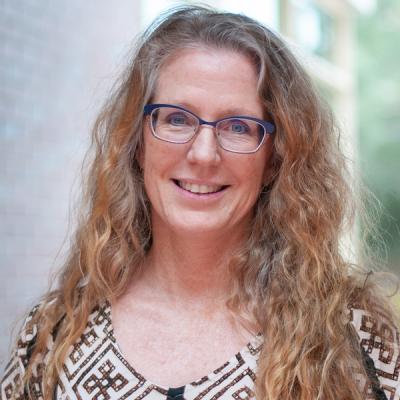
Dr. Debra Ann Fadool, Ph.D., is a Distinguished Research Professor in the Department of Biological Science.
Dr. Fadool earned her doctorate at the University of Florida and Whitney Laboratory in 1993. She is researching olfactory signal transduction as well as conducting research with learning, memory, and neural plasticity at the level of the ion channel protein through electrophysiology.
Her work explores how diet-induced obesity can affect brain circuitry and electrical signaling of neurons. Most recently she received special funding from the medical marijuana consortium of the state of Florida (MMJCOR), where she is testing how CBD (cannabidiol) affects obsessive compulsive behavior, anxiety, ADHD, and ingestive behaviors in mice. Even though you can find CBD at every gas station, infused in beer at local establishments, and while waiting in line at Esposito’s, little scientific research has been performed to demonstrate its effect to change behavior or which of the purported 70 targets it may activate in the nervous system.
She is also testing if there are fetal developmental changes in mice administered CBD during pregnancy and how this might change anxiety-like behaviors as an adult.
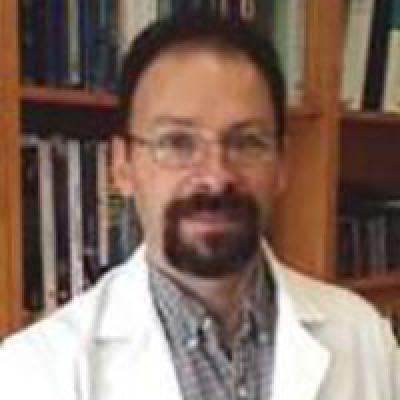
Dr. James Fadool earned his Ph.D. at Michigan State University in 1992 and completed NIH postdoctoral Fellowships at the University of Florida and Harvard University. He studies genetic and biochemical mechanisms regulating visual system development with basic and translational applications to stem cell biology and therapeutic approaches for management of photoreceptor disease.
View Profile
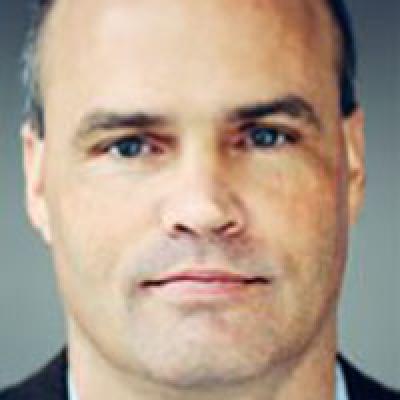
Dr. Thomas Joiner earned his Ph.D. from the University of Texas at Austin. His research is on the psychology, neurobiology, and treatment of suicidal behavior and related conditions, including in active duty military and veteran populations.
View Profile
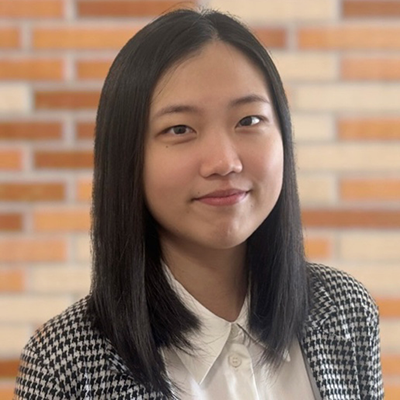
Dr. Zhaotong Lin is an Assistant Professor of Statistics. Her research focuses on advancing statistical genetics and genomics to better understand the biological mechanisms underlying complex human diseases. Her work spans Mendelian randomization, genome-, transcriptome- and proteome-wide association studies (GWAS/TWAS/PWAS), genetic colocalization, fine-mapping, and polygenic risk prediction. These methodologies form a comprehensive framework for identifying and prioritizing causal genes, molecular pathways, and modifiable risk factors that may contribute to disease risk and progression.
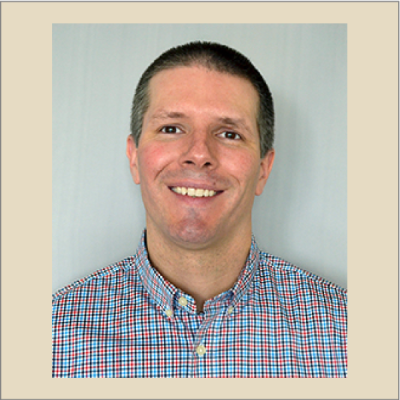
Dr. Chris Martin earned his Ph.D. from the University of Western Ontario in 2015. He is an Assistant Professor in the Department of Psychology and Program in Neuroscience.
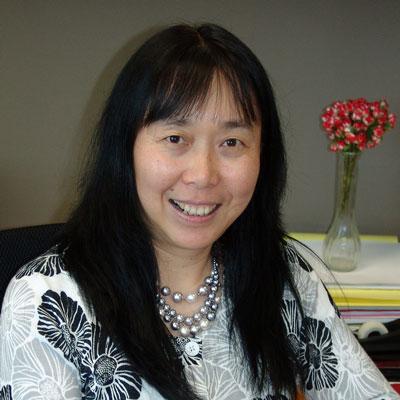
Dr. Qing-Xiang “Amy” Sang is a Pfeiffer Professor for Cancer Research in Chemistry and Biochemistry and an Endowed Chair Professor of Cancer Research at the Florida State University. She received her Ph.D. degree from Georgetown University in Washington D.C. in 1990. Dr. Sang received National Research Service Award, NIH Individual Postdoctoral Fellowship and many other awards and grants. Dr. Sang has discovered and characterized several novel human metalloproteinases that are involved in cancer invasion and angiogenesis and age-related inflammatory diseases. She has made significant contributions to the field of biochemistry and enzymology, particularly for deciphering structure-function relationship of metalloproteinases and molecular mechanisms of cancer and inflammatory diseases. The Sang group and her collaborators are striving to elucidate the biochemical steps and molecular mechanisms of human breast cancer, brain cancer, and prostate cancer progression and the pathogenesis of acute stroke, chronic vascular dementia, and Alzheimer’s disease.
View Profile

Dr. Norman B. (Brad) Schmidt is Distinguished Research Professor in the Department of Psychology.
His research focuses on the nature, causes, treatment and prevention of anxiety and related psychopathology. He is interested in developing treatments for distress among individuals with Mild Cognitive Impairment and early Alzheimer’s disease as well as their caregivers.
Professor Schmidt earned his Ph.D. from the University of Texas in 1991.
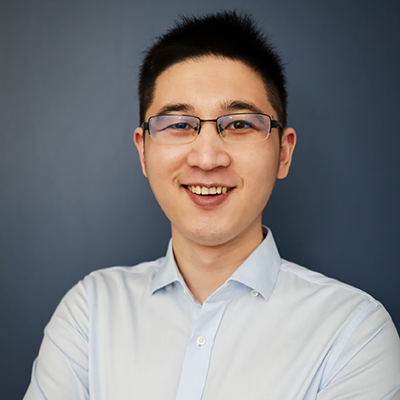
Dr. Guang Wang is an Assistant Professor in the Department of Computer Science at Florida State University. Previously, he was a Postdoctoral Associate at the Massachusetts Institute of Technology and earned his Ph.D. in Computer Science from Rutgers University. His current research focuses on Generative AI and AI for Sustainability, advancing techniques in Massive Data Mining, Trustworthy Machine Learning (including fairness, privacy, and safety), Human-Centered Computing, and Cyber-Physical Systems. Dr. Wang applies these techniques to real-world challenges in mobility, healthcare, economy, and climate change. He has published in high-impact interdisciplinary journals and top-tier computer science conferences, including Nature Cities, KDD, VLDB, UbiComp, MobiCom, WWW, AAAI, and CIKM.
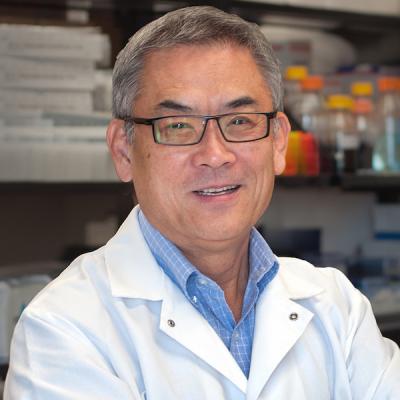
Dr. Zuoxin Wang received his Ph.D. from the University of Massachusetts at Amherst in 1991. He joined the faculty at Florida State University in 1998, and now is University Distinguished Research Professor in the Department of Psychology and Program in Neuroscience.
Professor Wang is an elected Fellow of the American Association for the Advancement of Science and of the American Psychological Association. His research is devoted to the understanding of the neuronal and hormonal mechanisms of social behaviors as well as the effects of environmental and physiological factors on brain plasticity and its subsequent role in behaviors. His research has been continuously supported by multiple National Institutes of Health grants.
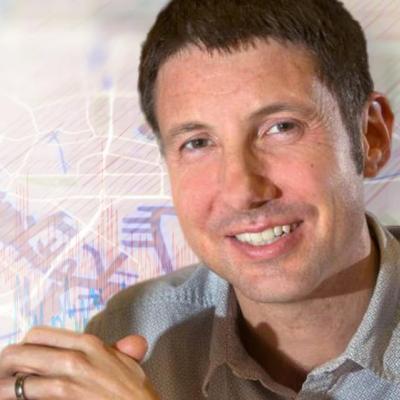
Dr. Aaron Wilber is Assistant Professor in the Department of Psychology and is affiliated with the Program in Neuroscience. He earned his Ph.D. from Indiana University in 2010. His research is directed at understanding how we get oriented in space so we can navigate our environment and what goes wrong when this system fails.
He is currently exploring why Alzheimer’s disease leads to difficulty navigating new surroundings, what brain changes may underlie getting lost, and treatments for reversing these impairments.
View Profile
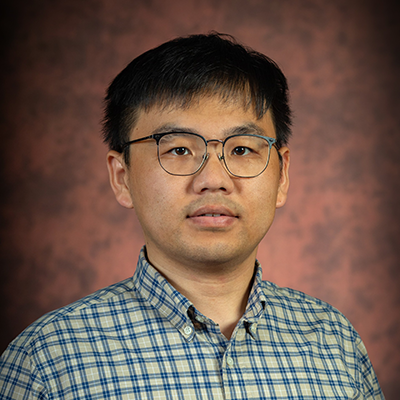
Dr. Xiulin Xie is an Assistant Professor of Statistics at Florida State University. He earned his Ph.D. in Biostatistics from the University of Florida in 2023. His research focuses on statistical process control, data stream monitoring, and the application of machine learning for dynamic health surveillance and early disease detection. Dr. Xie’s work on dynamic disease screening and health monitoring contributes directly to the mission of ISL: promoting healthy aging and timely medical interventions to enhance the well-being of older adults. By developing advanced statistical and computational methods, he aims to improve early warning systems for chronic and age-related conditions, enabling proactive and data-driven approaches to healthy longevity.
College of Business
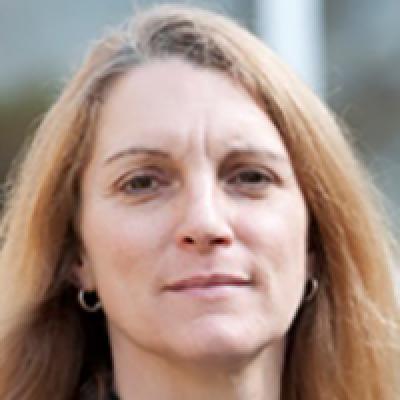
Dr. Patricia Born received her Ph.D. in Economics from Duke University and is currently the Midyette Eminent Scholar of Insurance in the Department of Risk Management/Insurance, Real Estate and Legal Studies at Florida State University. She is a research associate in the Florida Catastrophic Storm Risk Management Center and the Director of the Risk Management PhD program in the College of Business. Her research interests include insurance regulation, medical malpractice, retirement planning, health insurance, tort reform, and catastrophe modeling. She has published in leading insurance academic journals including Journal of Risk and Uncertainty, Journal of Risk and Insurance, Journal of Regulatory Economics, Columbia Business Law Review, and the Journal of Business and Economic Statistics. She is Editor of Risk Management and Insurance Review.
Dr. Born has served as President of the American Risk and Insurance Association and the Risk Theory Society.She serves as the Insurance Finance Expert on the Florida Commission on Hurricane Loss Projection Methodology. She also serves as a Long Term Care Ombudsman for the State of Florida Department of Elder Affairs.
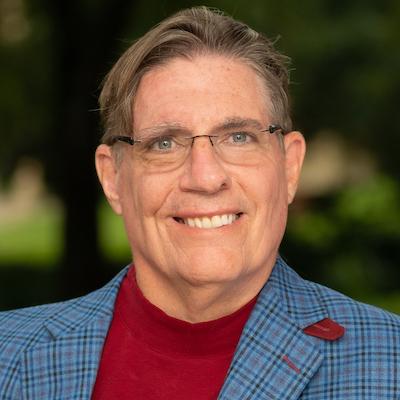
Dr. JR Harding, Ed.D., is a Teaching Faculty II in the College of Business and an author, speaker and advocate.
A leader within the disability community from both personal and professional experience, Dr. Harding has contributed for the past 38 years in national, state, and community public policy to advance the independence and self-sufficiency of persons with disabilities. He is a former two-time presidential appointee, seven-time Florida gubernatorial appointee, and author of Now What? and ADA Adventure. As a 2x quadriplegic, he strives to lead by example.
Dr. Harding currently serves on several national, state, and community boards.
College of Communication and Information
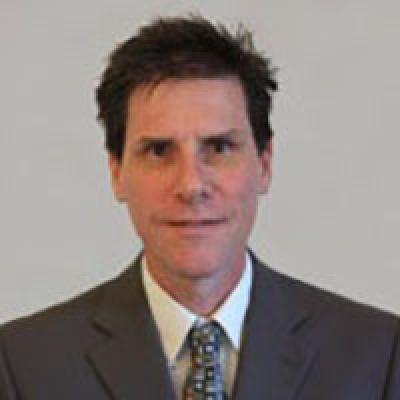
Dr. Jonathan Adams is a professor in the College of Communication and Information with The Florida State University. During his 20 years’ experience with in interactive software development he received 17 awards for technical achievement and innovation. During his employment with FSU, he directed a graduate program in interactive communication, led 2.5 million dollars in contracts and grants and is currently a co-founder of iMaker FSU an interdisciplinary research and development facility focused on the development of new and innovative uses for information technologies. Adams’ interdisciplinary work includes university teaching positions in Electrical & Computer Engineering, Music, Education and Communication. Dr Adams has a deep interest in entrepreneurship. He has organized a Startup Weekend, several 3 Day Startup events and regularly serves as a judge, mentor and consultant on campus and in the local community. He is an active member of the Project Management Institute and an avid fan of gypsy jazz.
View Profile
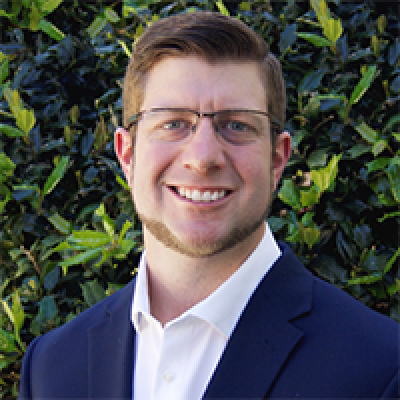
Dr. Russell B. Clayton is Associate Professor and Founding Director of the Cognition and Emotion Lab (CEL) in the School of Communication. His primary research examines how people cognitively and emotionally interact with and respond to various media and technologies utilizing psychophysiological, behavioral, self-report, and memory measures. The goal of his research is to provide recommendations into how media content and technologies can be used to advance human health and wellness. Dr. Clayton has worked with the Institute for Successful Longevity as a Co-Investigator on the institute’s project, Human Factors Guidelines to Develop Education Tip Cards for Aging Road Users, for the Florida Department of Transportation. His work has been published in leading journals including the Journal of Communication; Media Psychology; Journal of Computer-Mediated Communication; Health Communication; and Communication Monographs, among others.
He was recently named an Emerging Scholar by the Association for Education in Journalism and Mass Communication (AEJMC).Dr. Clayton earned his B.S. in Psychology in 2010 and M.A. in Health Psychology in 2012, both from Texas State University. He earned his Ph.D. from the University of Missouri in 2015.

Dr. Juliann Cortese is Associate Professor and Director of Master's Studies in the School of Communication. Her area of research focuses on the uses and effects of online health content, having examined online tailoring, mediated social support, and mental processes engaged in while examining online content. Dr. Cortese worked with ISL as a Co-Investigator on their project, Human Factors Guidelines to Develop Education Tip Cards for Aging Road Users, for the Florida Department of Transportation. She has published in top ranking journals including Patient Education & Counseling, Journal of Health Communication, Journal of the American Society for Information Science and Technology, and Human Communication Research.
View Profile
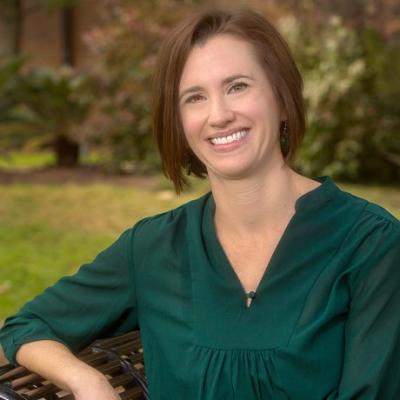
Dr. Erin Ingvalson received her Ph.D. in cognitive psychology with a concentration in cognitive neuroscience from Carnegie Mellon University. She did her postdoctoral training in communication sciences and disorders at Northwestern University before joining FSU’s School of Communication Science and Disorders in the College of Communication and Information. Dr. Ingvalson’s interests are in speech perception and speech learning. Her lab takes a whole-lifespan approach, studying individual differences in speech learning outcomes from children receiving a cochlear implant to younger adults perceiving accented speech to older adults learning to adapt to the changes in speech perception that accompany aging.
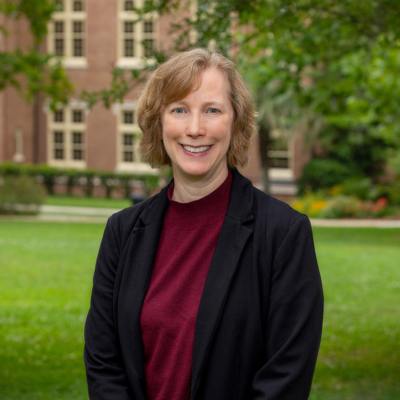
Dr. Michelle M. Kazmer is a professor in the School of Information, and Dean of the College of Communication and Information. She also holds a courtesy faculty appointment at the College of Medicine in the Department of Behavioral Sciences and Social Medicine.
Her Ph.D. is from the School of Information Sciences at the University of Illinois at Urbana-Champaign, her MLS is from the School of Information Sciences at the University of Pittsburgh, and her B.S. in Mechanical Engineering is from Columbia University. She has worked as a rare book cataloger, as an academic engineering librarian, and as a technical information specialist for a big-three automotive manufacturer. Her research expertise is in qualitative methods, and her work focuses on distributed knowledge processes. Her work is collaborative and multidisciplinary and prioritizes working with graduate students. Her research in distributed knowledge has two primary directions: studies of health knowledge creation and sharing, and conducting information science theoretical analyses of golden age detective fiction.
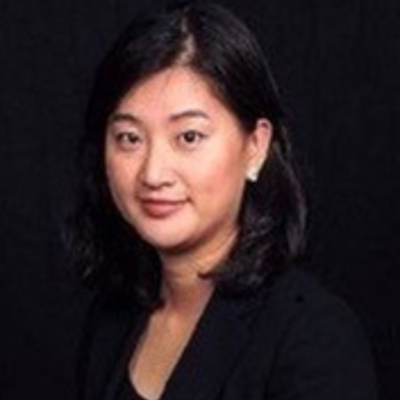
Dr. Yunjung Kim is a professor in the School of Communication Science and Disorders and directs the FSU Motor Speech Laboratory. Her primary research interests lie in the transformation from a talker’s articulatory behavior to listeners’ reaction. Specifically, her work has focused on identifying acoustic and articulatory characteristics of speech produced by people with neurologic conditions that negatively impact their speech intelligibility. For this, she uses a wide methodological toolkit including acoustic analysis software, electromagnetic articulography (EMA), and ultrasound imaging. Recent work in the lab has focused on developing speech rehabilitation models for linguistically and culturally minor groups (e.g., foreign born immigrants) in international, multidisciplinary collaboration with experts in rehabilitation psychology, business, computer engineering, and clinical care.
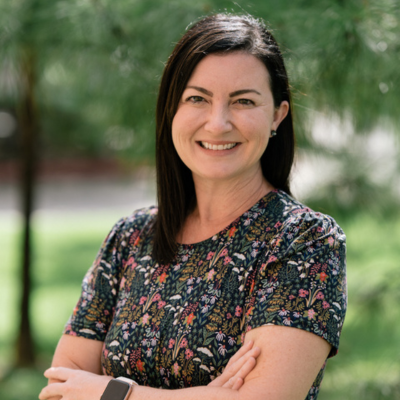
Dr. Kaitlin Lansford is Associate Professor in the School of Communication Science and Disorders and Director of FSU’s Motor Speech Disorders Lab, where she conducts research on dysarthric speech perception. Her work focuses on perceptual training, which offers a promising avenue for improving intelligibility of people with dysarthria by offsetting the communicative burden from the patient onto their primary communication partners. She earned her Ph.D. in speech and hearing science from Arizona State University.
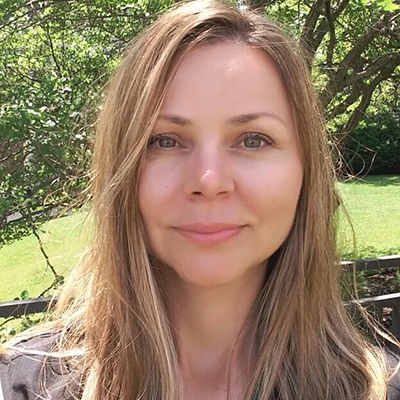
Dr. Sladjana Lukic is a language neuroscientist with multidisciplinary expertise in formal linguistics, stroke and primary progressive aphasias, and neuroimaging. She is an Assistant Professor in the School of Communication Science and Disorders at FSU and Director of NoLaB Lab, where her work focuses on disentangling linguistic (dis)abilities in people with aphasia and uncovering their underlying neuroanatomical correlates using both structured language tests and naturalistic speech measures. Her research also explores linguistic processes in the context of degeneration and development, from which she has developed her new line of work investigating how language shapes behavior. She received her PhD and MA from Northwestern University under the supervision of Dr. Cynthia Thompson and completed postdoctoral training in Cognitive Neuroscience at the UCSF Memory and Aging Center under the supervision of Dr. Maria Gorno-Tempini.
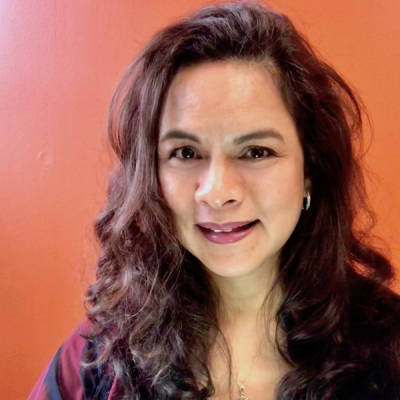
Dr. Mia Liza A. Lustria is a professor in the School of Information. She earned her doctorate in communication from the University of Kentucky in 2005 and joined Florida State University's faculty the same year. Her research explores different ways that persuasive technologies and interactive media can be leveraged to empower health consumers and improve access to health care.
Dr. Lustria is known for her research on theory-based message tailoring, information seeking, health literacy and the participatory design of eHealth approaches to support behavior-change and patient self-management, primarily in the areas of adolescent and women's health, cancer, diabetes, mental health and STD prevention.
She is the Tech Liaison of the FSU Center for Translational Behavioral Science and is a founding member of the Florida Health Equity Research Institute. She also has courtesy appointments at the College of Medicine, the School of Communication and the Master of Public Health Program at FSU.
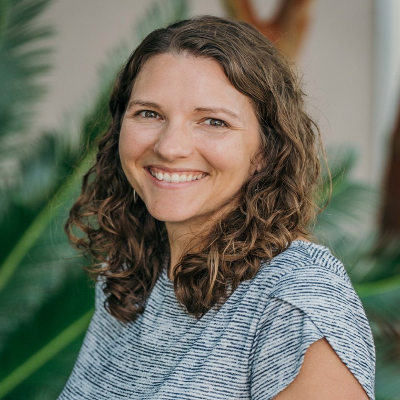
Dr. Elizabeth B. Madden, PhD, CCC-SLP, is a speech-language pathologist and aphasia researcher. Her research focuses on the rehabilitation of language and life participation after stroke and aphasia. She has particular interests in reading and writing recovery, as well as improving friendships and social networks for stroke survivors and their care partners.
View Profile

Dr. Paul F. Marty is Professor in the School of Information within the College of Communication and Information at Florida State University, Florida’s iSchool. He has a background in ancient history and computer science engineering, and his Ph.D. is from the Graduate School of Library and Information Science at the University of Illinois at Urbana-Champaign. From 1996 to 2002, he was Director of Information Technology at the Spurlock Museum. Dr. Marty’s research and teaching interests include museum informatics, information behavior, and user-centered design. He specializes in the study of museums as sociotechnical systems, and is particularly interested in the social implications of introducing new technologies into the museum environment. His current research focuses on the evolution of sociotechnical systems and collaborative work practices, digital convergence and the evolving roles of information professionals, and involving users in the co-construction of distributed, digital knowledge.
View Profile
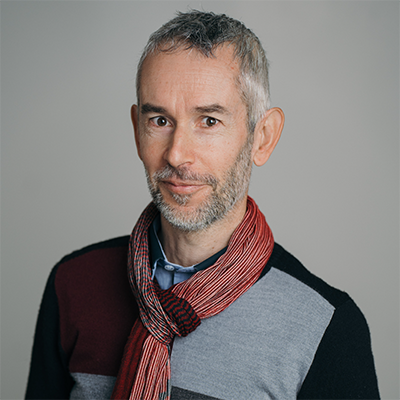
Dr. Patrick F. Merle, a French native, is an Associate Professor in the School of Communication at Florida State University. He was previously an international reporter for global news organizations. He earned his Ph.D. in Communication from Texas Tech University in 2013. Currently, Dr. Merle serves as the Director of the School of Communication (2020-present), after having previously been the Director of the Integrated Marketing Communication program.
In the 2024-2025 academic year, Dr. Merle serves as the Chair of the Virtual Conference for the AEJMC Public Relations Division's leadership team. He is also a part of the Executive Editorial Committee for the Journal of Visual Communication in Medicine and serves as an Assistant Editor for Frontiers: The International Journal of Study Abroad. Dr. Merle is actively involved in various professional organizations, including being a member of the Behavioral Insights Research Center of the Institute for Public Relations and serving on the Advisory Committee for the International Public Relations Research Conference.

Dr. Min Sook Park specializes in data-intensive, user-centered health informatics, focusing on chronic conditions and their caregivers. Her research explores the relationship between information technology and health users to support individuals managing hypertension, diabetes, cancer, and dementia. Collaborating with interdisciplinary teams, she develops innovative health applications, including a voice-activated mobile health app for chronic disease management. Utilizing computational methods, Dr. Park analyzes user-generated data from social media to uncover insights into health information needs and behaviors.
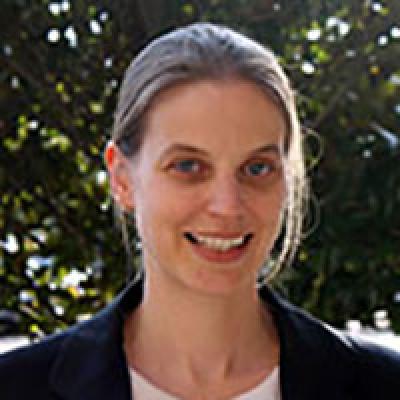
Dr. Ulla Bunz is an Associate Professor in the School of Communication. She earned her Ph.D. from the University of Kansas in 2002. Dr. Bunz conducts research on the positive effects of technology (e.g. digital games, social media, Internet, mobile phone) across the adult lifespan. This research also includes personality factors that persist over time, health benefits derived from the use of technology, strengthening of inter-generational ties, and overall quality of life.
View Profile
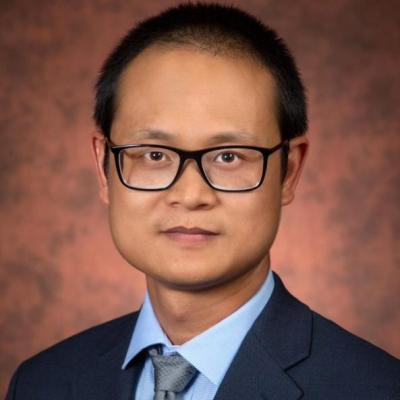
Dr. Zilong Xie is Assistant Professor in the School of Communication Science and Disorders. Previously, he was with the University of Kansas Medical Center. Xie earned his doctorate in Communication Sciences and Disorders from the University of Texas at Austin.
Xie’s research involves understanding how age-related changes in auditory and cognitive functions limit speech understanding and translating this new knowledge into clinical strategies to improve the outcomes of older listeners, especially those with cochlear implants.
His work focuses on older adults with cochlear implants and on older adults with mild cognitive impairment.
College of Education, Health, and Human Sciences

Dr. Jacob Brown is an Assistant Professor in the Department of Health, Nutrition, and Food Sciences at Florida State University. His research focuses on understanding the molecular mechanisms underlying skeletal muscle wasting during aging and age-related conditions, including cancer cachexia.
Dr. Brown earned his Ph.D. in muscle physiology from the University of Arkansas in 2018, where he studied cancer cachexia. He completed postdoctoral training at the Oklahoma Medical Research Foundation under the mentorship of Dr. Holly Van Remmen, with additional guidance from leaders in skeletal muscle and aging research, including Drs. Arlan Richardson, Sue Bodine, and Benjamin Miller. His postdoctoral work focused on identifying mechanisms contributing to denervation-induced and age-related muscle atrophy. During his postdoctoral training, Dr. Brown was supported by a Geroscience T32 training grant. In 2023, he received a VA Career Development Award and began his independent research career as a Research Health Scientist at the Oklahoma City VA Medical Center. He joined Florida State University in 2025.
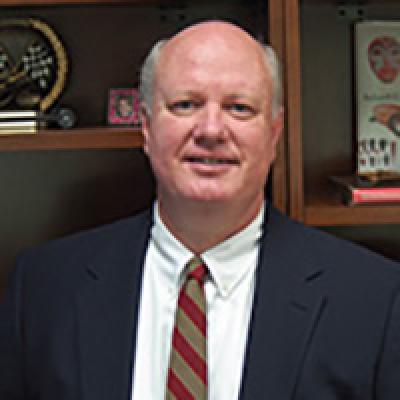
Dr. Michael Delp received a B.S. degree in Biomedical Chemistry from Oral Roberts University and M.A. and Ph.D. degrees from the University of Georgia in Exercise Physiology. He was an Alexander von Humboldt Fellow at the University of Konstanz in Germany and a postdoctoral fellow at the University of Missouri. His research examines the effects of physical activity on the cardiovascular system. Work from the Delp laboratory uses aging, microgravity (simulated and actual) and type 2 diabetes to investigate the effects of low levels of physical activity on vascular function, and exercise training to determine whether elevations in physical activity improve indicators of vascular health. According to the American Heart Association, physical inactivity is a major risk factor for developing coronary artery disease, stroke and peripheral vascular disorders. It also contributes to other risk factors, including obesity, high blood pressure, low levels of HDL cholesterol, and diabetes. Work from the Delp laboratory has focused on the full spectrum of physical activity on smooth muscle and endothelial cell function of arteries, and how activity-related alterations in vasomotor function alters control of arterial pressure and tissue perfusion.

Dr. Shengli Dong earned his Ph.D. from the University of Maryland, College Park. He conducts research on workplace accommodations for people with disabilities, as well as vocational rehabilitation. Dr. Dong also investigates the relationship between mindfulness and mental health, and multicultural counseling.
View Profile
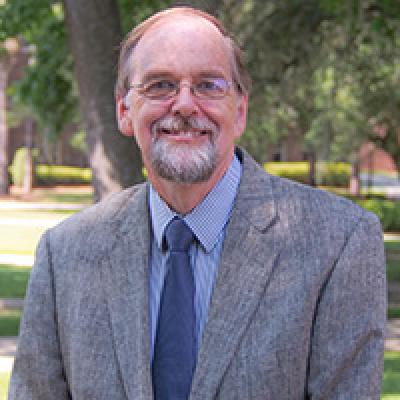
Dr Frank Fincham is an Eminent Scholar and Director of the Florida State University Family Institute who received his doctoral degree in psychology from Oxford University, England. His research focuses on cognitive processes relating to conflict in marital relationships and forgiveness as a relationship repair process. He has developed a bi-dimensional model of relationship quality along with a brief measure for its assessment. Current work also includes study of mindfulness and prayer in romantic relationships as well cardiovascular functioning and hemodynamics.
View Profile
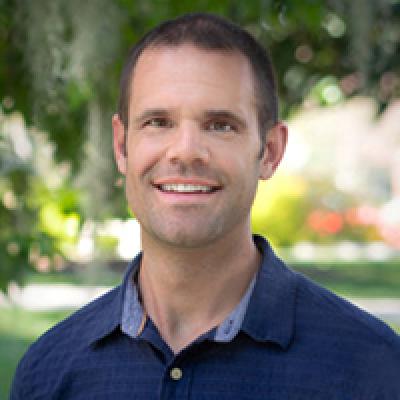
Dr. Bradley Gordon‘s research is focused on understanding how stimuli such as nutrients, hormones, and physical activity regulate changes in skeletal muscle mass and muscle function in diseased and non-diseased conditions. He utilizes both in vivo and in vitro model systems, including synergistic ablation, acute and long-term aerobic exercise training, high frequency muscle contractions, and castration, to test his hypotheses.
Dr. Gordon received his Ph.D. in Applied Physiology from the University of South Carolina and conducted postdoctoral work in cell and molecular physiology at the Penn State College of Medicine.
View Profile

Dr. Amy R. Guerette, Ed.D., is the College of Education Associate Dean for Academic Affairs and an Associate Professor in the Program on Visual Impairments. She currently oversees academic affairs, student affairs, and accreditation in the College. Prior to working in higher education, Dr. Guerette worked as a Teacher of Students with Visual Impairments and a Deafblind Specialist in P-12 education. She serves on national and state committees in the field of visual impairment and deafblindness, as well as various state and university committees regarding teacher preparation and academic integrity. Her research interests include the development of literacy skills in students with visual impairments and deafblindness, accommodations and workplace barriers for adults with visual impairments, and teacher preparation.
View Profile
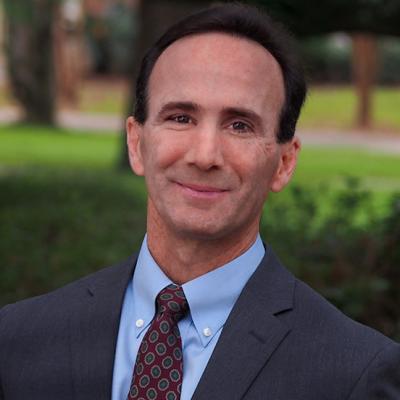
Dr. Robert Hickner is a Professor in the Department of Nutrition and Integrative Physiology with a broad research agenda investigating how exercise and nutrition affect the regulation of blood flow and metabolism in peripheral tissues to improve cardiometabolic disease risk across the lifespan.
Dr. Hickner received B.S and M.S. degrees in Biology from Indiana University and Ball State University, respectively, as well as a Ph.D. in Physiology from the Karolinska Institute in Sweden. He subsequently completed a postdoctoral fellowship at the Washington University School of Medicine.
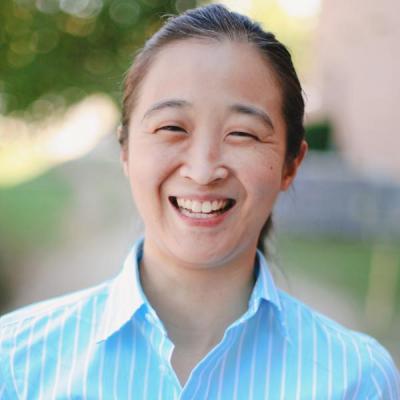
Dr. Amy Chan Hyung Kim is an Associate Professor in the Department of Sport Management at Florida State University. Dr. Kim’s research interest focuses on promoting sport for health from a social epidemiological perspective at various levels such as non-institutionalized older adults. Her primary research inquiry aims to: (1) examine the effectiveness of sport participation on individual’s social, psychological/mental health outcomes from a social epidemiological perspective, and (2) develop evidence-based interventions to promote sport participation and participants’ health and well-being.
For her research projects, Dr. Kim has worked with various sport organizations such as Tallahassee Parks, Recreation & Neighborhood Affairs; United States Tennis Association; the United States America Pickleball Association; and others.
Dr. Kim earned her doctoral degree and master’s degree from The Ohio State University and her bachelor’s degree from Yonsei University.
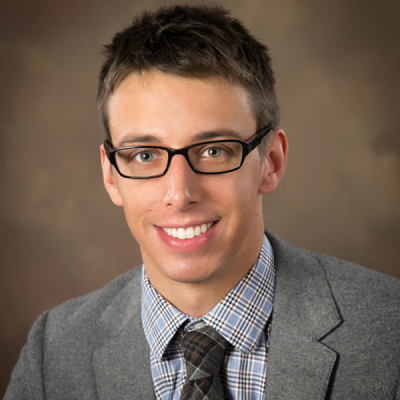
Dr. Jonathan Kimmes is an assistant professor in the Department of Family and Child Sciences in the College of Human Sciences. He earned his Ph.D. in Family Studies and Human Services from Kansas State University in 2016.
Dr. Kimmes' research focuses on the association between mindfulness and romantic relationship processes and, by extension, various aspects of psychological and physical health and well-being.
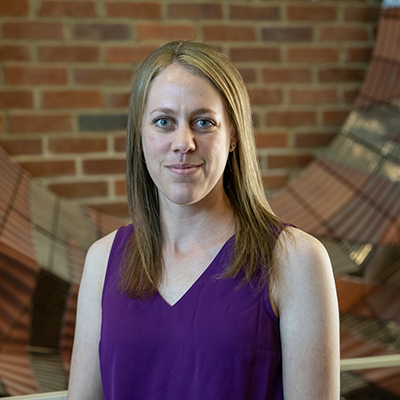
Dr. Andrea Lobene is an Assistant Professor in the Department of Health, Nutrition, and Food Sciences. Prior to joining FSU in 2024, Dr. Lobene completed her postdoctoral training at the University of Delaware in the area of applied cardiovascular physiology. She received her PhD in Nutrition Science from Purdue University, and she is also a registered dietitian.
Dr. Lobene’s research is focused on how various dietary factors, especially sodium and potassium, affect cardiovascular health across the lifespan. Her aim is to develop and implement effective dietary interventions to improve early cardiovascular disease risk factors. She also hopes her work can contribute to improving current dietary guidelines and policies to improve cardiovascular health at the population level.
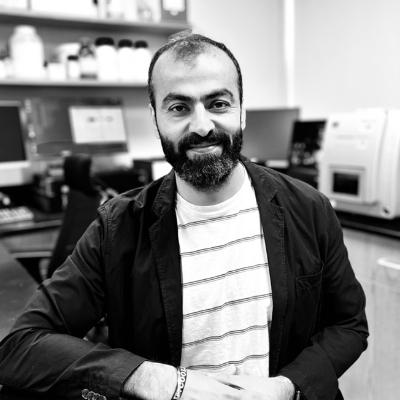
Dr. Ravinder Nagpal is an Assistant Professor in the Department of Nutrition and Integrative Physiology. He received his Ph.D. in Food & Dairy Microbiology from the National Dairy Research Institute in Haryana, India, and undertook postdoctoral training in gut microbiology at Juntendo School of Medicine in Tokyo and Wake Forest School of Medicine in Winston-Salem, N.C.
His research focuses on understanding the role of the gut microbiome in aging-associated intestinal and neurocognitive health. The overarching goals of his research program are to identify elements of gut dysbiosis, uncover the mechanisms of beneficial versus pathogenic microbes and metabolites in host physiology, and leverage this knowledge to develop novel nutritional and pharmacological interventions. These interventions aim to foster a healthier microbiome and alleviate gut, cardiometabolic, and neurodegenerative disorders, including obesity, type-2 diabetes, and Alzheimer’s disease. Specifically, the ongoing research in his microbiome lab is centered on unveiling the cellular, molecular, and microecological mechanisms underlying the following: investigating the role of gut microbiome dysbiosis and entero-septic pathobiome elements in neurodegenerative disorders such as Alzheimer’s disease, exploring the interaction of the gut microbiome with specific nutritional interventions, dietary components, and pre/probiotics in the context of metabolic and neurodegenerative health, and examining the role of maternal and neonatal microbiome elements concerning the developmental origins of health and disease.
Dr. Nagpal's team utilizes cutting-edge and high-throughput microbiological, metagenomic, computational, and preclinical models to gain a comprehensive understanding of specific bacteriome, mycobiome, and metabolome factors and their interactions with the host physiological system. His lab engages in extensive multidisciplinary collaborations with experts in gerontology, neuroscience, microbiology, nutrition/food sciences, cell/molecular biology, immunology, sepsis, and clinical care. Their principal mission is to gain advanced and inclusive insights into this intricate and fascinating area of research.

Dr. Joshua I. Newman is Co-Director of the Center for Sport, Health, and Equitable Development (SHED) and Professor of Sport, Media, and Cultural Studies in the Department of Sport Management.
Dr. Newman earned his Ph.D. at the University of Maryland.

Dr. Michael Ormsbee is Professor of Nutrition and Integrative Physiology, the Associate Director of the Institute of Sports Sciences & Medicine, and an Honorary Research Fellow at the University of KwaZulu-Natal in Durban, South Africa.
Dr. Ormsbee joined the FSU faculty in 2010, after spending two years at Skidmore College (Saratoga Springs, NY) in the Department of Health and Exercise Sciences.
He completed his Ph.D. in Bioenergetics (interdisciplinary program in Exercise Science, Physiology, & Biochemistry) from East Carolina University, his M.S. in Exercise Physiology and Sports Nutrition from South Dakota State University, and his B.S. in Exercise Science/Business from Skidmore College.
Dr. Ormsbee is a Fellow of both the American College of Sports Medicine and the International Society of Sports Nutrition. His research expertise involves the interaction of exercise training, nutrition, and supplementation to improve metabolism and achieve optimal body composition, human performance, and health in athletic and clinical populations. Dr. Ormsbee was honored as the 2014 FSU Undergraduate Teacher of the Year, 2017 Nutrition Researcher of the Year by the National Strength and Conditioning Association (NSCA), 2018 FSU Graduate Student Mentor of the Year, 2020 FSU Distinguished Teacher of the Year, and the 2020 Sport Scientist of the Year by the NSCA. His course, “Changing Body Composition Through Diet and Exercise” is available through The Great Courses. Follow him @mikeormsbee.
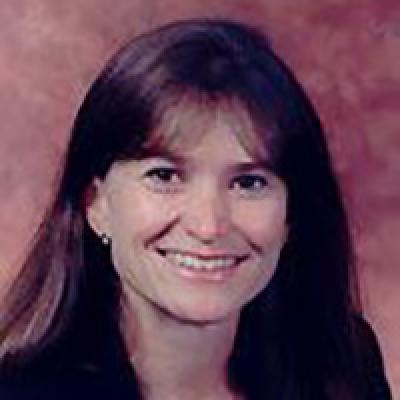
Dr. Lynn Panton is a Professor in the Department of Nutrition and Integrative Physiology. She is a fellow of the American College of Sports Medicine. Dr. Panton’s research interests are in strength training and the effects on the physiological measurements of strength, blood pressure, cholesterol, body composition, and functional outcomes of healthy elderly adults and chronically diseased populations. Her recent research has focused on the effects of strength training in women breast cancer survivors. She received her BS from Emory University, and MSESS and Ph.D. from University of Florida.
Dr. Michelle S. Parvatiyar is an Assistant Professor in the Department of Nutrition and Integrative Physiology and earned her doctorate in Pharmacology from the University of Miami. Her research is focused on understanding age-related factors that drive cardiovascular disease development and understanding the parameters that govern force transduction in striated muscle.
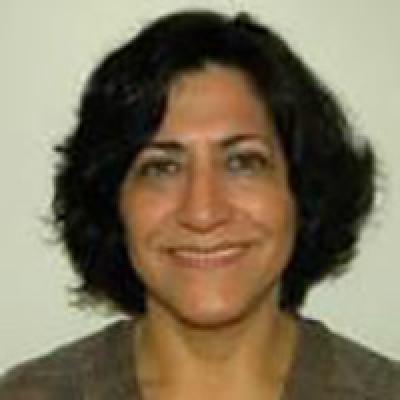
Dr. Gloria Salazar obtained a M.S. in Biochemistry in 1993 and a Ph.D. in Molecular and Cell Biology in 2000 from the Catholic University in Santiago, Chile. Dr. Salazar’s research has established a novel interplay among mitochondrial function, autophagy and zinc metabolism in the regulation of vascular aging. These studies will provide a foundation for novel therapeutic interventions to promote healthier aging and prevent/delay age-related diseases including atherosclerosis.
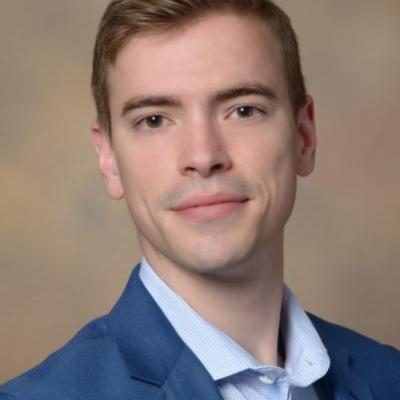
Dr. Kyle Smith is an Assistant Professor in Sports Nutrition. He received his Doctorate of Philosophy, Physiological Sciences with a Minor in Molecular Medicine in May 2023 from the University of Arizona, Tucson, AZ. His research is primarily focused on how diet, exercise, and stress alter the immune system. Changes in lifestyle factors can drastically affect how our immune cells respond to insults, and much of his laboratory’s work is aimed at developing economical adjuvants to current cancer immunotherapies. Related to this work, he also investigates the effects of spaceflight on the immune system in an effort to bolster immune function for future long-duration missions. Lastly, he is interested in dietary modification and supplementation to enhance sports performance in a variety of different settings.
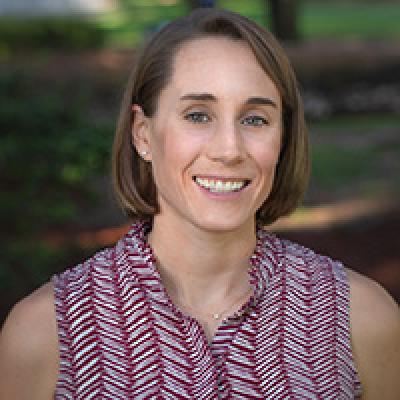
Dr. Jennifer Steiner earned her doctorate in Applied Physiology at the University of South Carolina and is now an assistant professor in the Department of Nutrition and Integrative Physiology..
Dr. Steiner conducts research into the integration of exercise physiology and nutrition and the role of these factors in the prevention and treatment of disease as well as the promotion of optimal health and performance. Her current work focuses on the impact of alcohol, sepsis or different dietary and exercise interventions in regards to the maintenance of skeletal muscle health and its interaction with other organ systems.
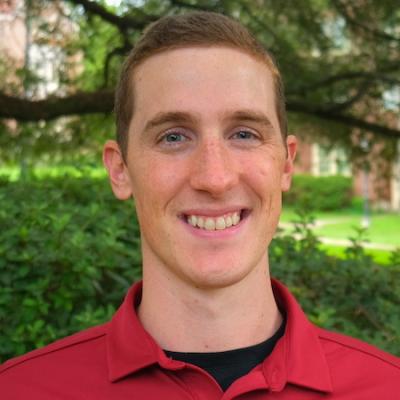
Dr. Joseph C. Watso is Assistant Professor in the Department of Health, Nutrition, and Food Sciences. He earned his Ph.D. in Applied Physiology from the University of Delaware in 2019.
His research focuses on prevention and treatment strategies for cardiovascular disease, with specific interests in obesity, hypertension, and aging.
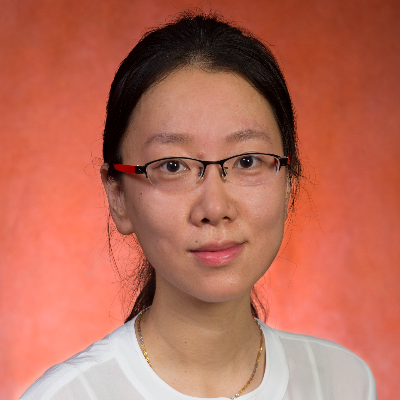
Dr. Qian (Jackie) Zhang is an Associate Professor in the Department of Educational Psychology and Learning Systems. She received her Ph.D. in Quantitative Psychology from the University of Notre Dame.
Dr. Zhang's research interests include applying, developing, and evaluating quantitative methods for social science studies. Her specific research focuses are causal inferences in experimental and quasi-experimental studies, regular and intensive longitudinal data analyses, mediation analysis, synthesizing effects using multilevel models, machine learning algorithms for feature selection and statistical modeling, and psychometric validation of psychological measures. Dr. Zhang is also dedicated to addressing complex data conditions, including missing data, measurement errors, and confounding variables in statistical modeling and analyses. She has extensively collaborated with researchers in various fields, including education, psychology, medicine, and family studies, among other social sciences.
College of Engineering

Dr. Juyeong Choi, Ph.D., is an Assistant Professor in the Department of Civil & Environmental Engineering at the FAMU-FSU College of Engineering. He earned his B.S. in Architectural Engineering from University of Seoul and M.S. and Ph.D. degrees in Civil Engineering from Purdue University. His research interests include infrastructure and facility planning, infrastructure system-of-systems, operational simulation modeling, and capital rehabilitation planning in the context of disaster risk reduction.
With regard to the research for aging populations, he is interested in infrastructure planning for aging populations in post-disaster situations (e.g., hurricane shelter planning, etc.).

Maxim A. Dulebenets, Ph.D., P.E., is an Assistant Professor in the Department of Civil & Environmental Engineering of the FAMU-FSU College of Engineering. His research interests include but are not limited to: operations research, optimization, simulation modeling, NP-hard problems, mathematical programming, metaheuristics, hybrid algorithms, evolutionary computation, transportation engineering, freight transportation, intermodal freight facilities, railroads, liner shipping scheduling, and GPS data processing.
Dr. Dulebenets holds B.S. and M.Sc. degrees in Railway Construction from the Moscow State University of Railroad Engineering and M.Sc. and Ph.D. degrees from the University of Memphis in Civil Engineering, with a concentration in transportation.
View Profile
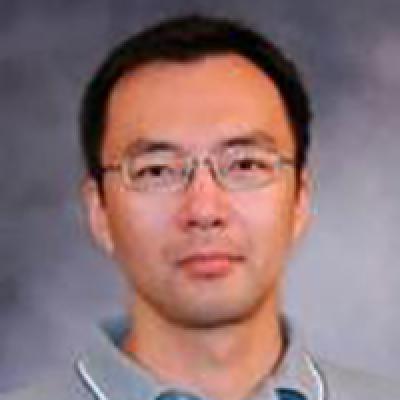
Dr. Jingjiao Guan researches Micro/nano -devices for biosensing and drug delivery. He earned his B.E. in Metal Physics in 1995 at the University of Science and Technology in Beijing as well as his M.E. in Materials Physics in 1998. In 2003 he earned a M.S. in Biophysics at The Ohio State University, and in 2005 Dr. Guan earned his Ph.D. in Biomedical Engineering at The Ohio State University.
View Profile

Dr. Qianwen (Vivian) Guo is an Assistant Professor of Transportation Engineering in the Department of Civil and Environmental Engineering at Florida State University. Her research focuses on improving transportation systems for vulnerable populations by harnessing emerging technologies such as virtual reality and drones to enhance mobility and food accessibility for aging communities. Dr. Guo leads multiple federally funded projects, including those supported by the U.S. Department of Transportation (USDOT) and the National Science Foundation (NSF). Her work explores driving behavior among vulnerable groups, the integration of autonomous vehicles in evacuation planning, and innovations in public transit for aging populations. An active researcher and collaborator, Dr. Guo has published extensively in top-tier transportation journals, including Transportation Research Part A, B, and C. Beyond her research, she is dedicated to mentorship, interdisciplinary collaboration, and advancing equitable and efficient transportation solutions.

Dr. Yan Li earned her B.S. in Chemical Engineering from Tsinghua University in Beijing China in 1995. In 2002 she earned her Ph.D.in Chemical Engineering at The Ohio State University. Dr. Li studies Stem cell technology and engineering; Tissue engineering and biomaterials; and Cell processing and bioprocessing.
View Profile
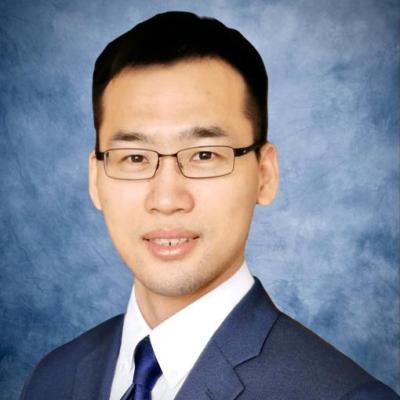
Dr. Leo Liu is an Assistant Professor of Chemical and Biomedical Engineering. He received his Ph.D. from the Woodruff School of Mechanical Engineering and Pettit Institute of Bioengineering and Biosciences at Georgia Institute of Technology in 2020.
Dr. Liu directs a research group that studies biofluid mechanics of living fluids such as blood. His current research focuses on understanding the effect of hemodynamics on blood-clot formation at the molecular, cellular and tissue level using multiscale computational modeling and experimental micro/macro-fluidic techniques. His research aims to facilitate successful longevity through developing diagnostic, preventive and therapeutic strategies for cardiovascular and hematologic problems such as heart attacks and strokes that are the leading causes of death in the United States.
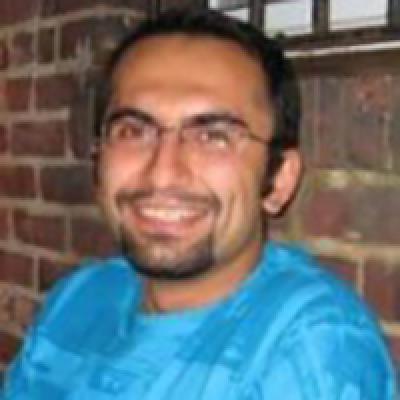
Dr. Eren Erman Ozguven, Ph.D., is an Associate Professor of the FAMU-FSU Department of Civil and Environmental Engineering. His research interests are focused on multi-modal emergency transportation operations, evaluation of roadway crashes, emergency inventory management, modeling of transportation networks, and intelligent transportation systems. Dr. Ozguven’s research program has evolved towards studying the accessibility and safety of the multi-modal transportation networks in order to assess the transportation needs of the aging populations. Dr. Ozguven has authored articles in respected journals such as Transportation Research Part C, Transportation Research Record, Transport Reviews and American Society of Engineers journals. He is actively involved in Transportation Research Board activities. He teaches courses in transportation engineering and statistics.
View Profile
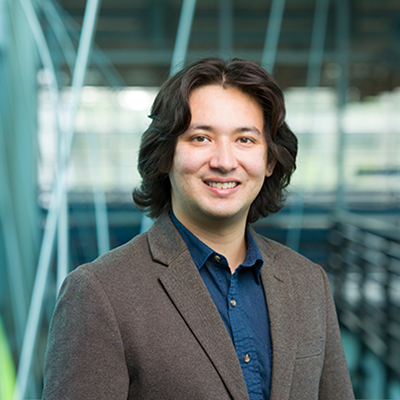
Dr. Nathan Richbourg is an Assistant Professor in the Department of Chemical and Biomedical Engineering at the FAMU-FSU College of Engineering. His research leverages fundamental insight into multi-property hydrogel design to evaluate how cell-environment interactions drive disease development in the bone marrow microenvironment. Improved hydrogel design, by controlling stiffness, protein transport, and biochemical properties, creates new opportunities for guiding cell behavior in artificial, 3D microenvironments. This approach aims to better characterize hematopoiesis, cancer metastasis to bone marrow, and the role of cellular senescence in aging bone marrow.
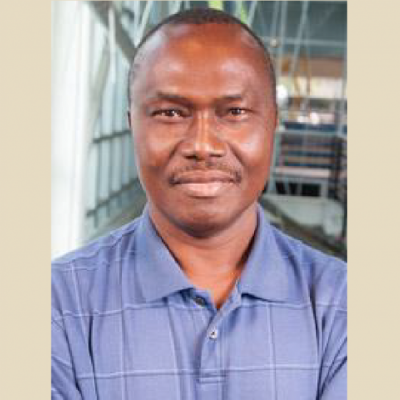
Dr. John Sobanjo is Professor of Civil & Environmental Engineering, Director of the Center for Accessibility and Safety for an Aging Population and a Faculty Affiliate of the Institute for Successful Longevity.
Dr. Sobanjo has a diverse background in civil engineering, with specific interests in the areas of transportation infrastructure systems, safety, resilience, sustainability, and applications of advanced technologies.
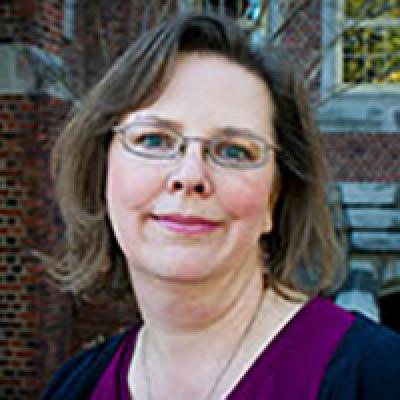
Dr. Lisa Spainhour received her Ph.D. in Civil Engineering from North Carolina State University in 1994, and studies traffic safety with a focus on aging drivers. Since 2002, she has led a team of researchers and programmers that develop, deploy, and support traffic crash and citation software, currently supported in over 150 agencies with over 16,000 users. Dr. Spainhour is the Director of the Center for Transportation and Public Safety, and the Education and Outreach Coordinator for the FSU Transportation Center for Accessibility and Safety for an Aging Population.
View Profile
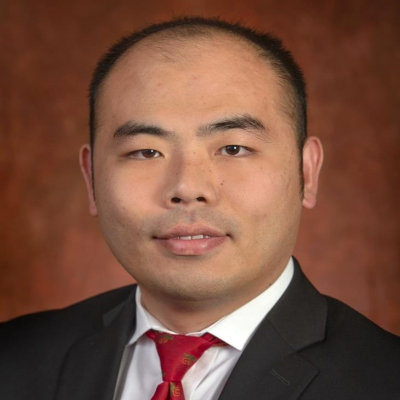
Dr. Yanshuo Sun is an Associate Professor in the Department of Industrial & Manufacturing Engineering at the FAMU-FSU College of Engineering, Florida State University. He received his Ph.D. in transportation engineering from the University of Maryland.
Dr. Sun specializes in mathematical programming and big data analytics with applications in transportation systems and logistics. He has published nearly 40 papers in leading journals in his research field, including IISE Transactions and Transportation Research Parts A, B, C, and E. At present, he serves as the principal investigator (PI) on three projects funded by the National Science Foundation (NSF) and another project funded by the Florida Department of Transportation (FDOT). In 2019, he received a planning grant from the Institute for Successful Longevity (ISL) to improve accessibility and mobility for transportation-disadvantaged population groups, including seniors, by developing advanced scheduling and communication tools. This project laid the foundation for his later and ongoing research funded by the NSF and the U.S. Department of Transportation (USDOT) on the same research theme.
College of Fine Arts

Dr. David Gussak, Ph.D., ATR-BC ., is a Professor and the Chairperson for The Florida State University Department of Art Education; he is also Clinical Coordinator for the Department’s Graduate Art Therapy program. David has published and presented extensively internationally, nationally and regionally on: art therapy in forensic settings, working with aggressive and violent clients, and the work of the art therapist.
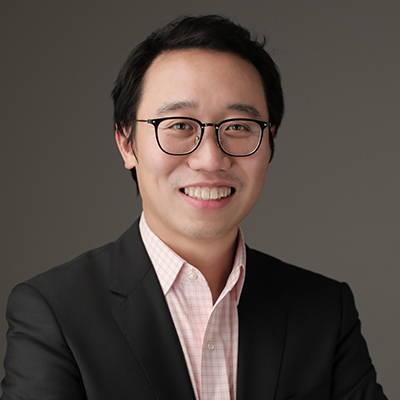
Dr. Daejin Kim is an Associate Professor of Interior Architecture and Design at Florida State University. His research centers on the relationship between the built environment and health and well-being, with a particular focus on designing physical spaces that support older adults. His expertise encompasses healthcare design, environmental gerontology, and evidence-based design, exploring how the physical environment influences the health, safety, and quality of life of older adults. Kim's contributions extend beyond academia, promoting greater awareness of the critical role that design plays in improving health outcomes and supporting successful aging in place. His work bridges research and practice, offering valuable insights to designers, researchers, and policymakers alike.
College of Medicine
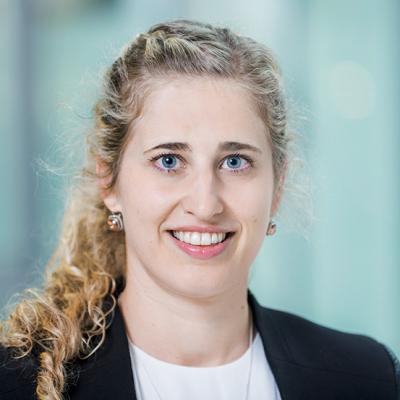
Dr. Damaris Aschwanden is a Post Doctoral Researcher in the College of Medicine. She received her Ph.D. in Psychology in 2018 from the University of Zurich, Switzerland. During the work on her doctorate, she was a fellow of the International Max Planck Research School on the Life Course (LIFE), a joint international Ph.D. program of the Max Planck Institute for Human Development, the Freie Universität Berlin, the Humboldt-Universität zu Berlin, the University of Michigan, the University of Virginia, and the University of Zurich.
Her research addresses the associations between personality, health, cognitive aging, and dementia. She investigates these links using data from both long-term longitudinal and ambulatory assessment studies. Her recent work has focused on the evaluation of risk factors for dementia applying machine learning and on the predictive value of cognitive performance and personality traits for daily cognitive behaviors.
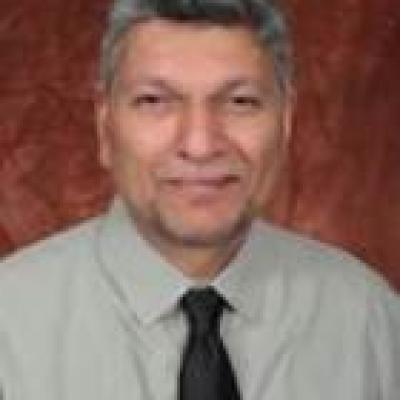
Dr. Pradeep Bhide received his degree in veterinary medicine from Veterinary College, Bangalore, India, and a Ph.D. in neuroscience from the University of Aberdeen, Scotland. He undertook postdoctoral training in developmental neurobiology at University College, London; Yale University; and Massachusetts General Hospital and Harvard Medical School. Dr. Bhide is the Jim and Betty Ann Rodgers Eminent Scholar Chair of Developmental Neuroscience and the director of the Center for Brain Repair at the Florida State University College of Medicine.
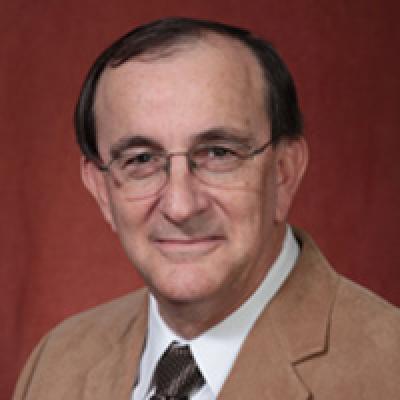
Henry J. Carretta, Ph.D., M.P.H., of the College of Medicine conducts health services research, public health systems and services research, and public health law research. Prior to joining the College of Medicine, Dr. Carretta was Medicare Research Director at the Veterans Affairs Information Resource Center. Earlier, he was an Instructor and Adjunct Professor for the Department of Health Administration and the Department of Pediatric Dentistry at Virginia Commonwealth University, where he received his Ph.D. in Health Services Organization and Research. He earned his M.P.H. in Epidemiology from the Eastern Virginia Medical School.
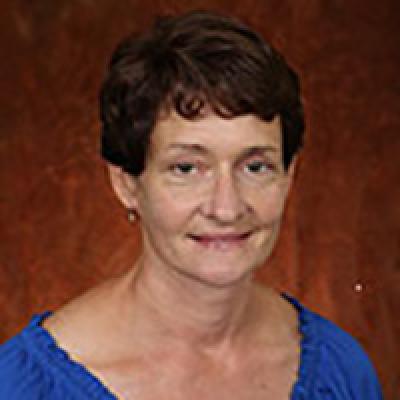
Dr. Judy Delp, Ph.D., is Professor in the College of Medicine. Her research program reflects a longstanding interest in adaptations of the resistance vasculature to aging and vascular disease associated with cardiovascular risk factors. Her work focuses on the ability of aerobic exercise training to reverse adverse vascular adaptations associated with advancing age.
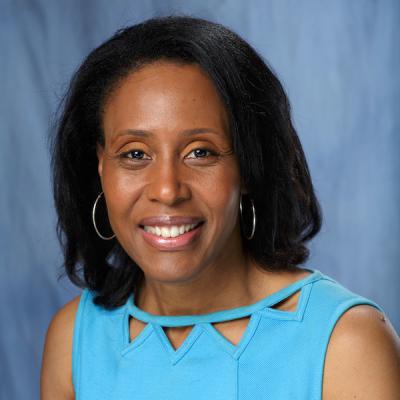
Dr. Nicole Ennis is an Associate Professor in the Department of Behavioral Sciences & Social Medicine in the College of Medicine. She received her Ph.D. from Kent State University in 2001 (Clinical Psychology, Health Psychology Track). Dr. Ennis completed her postdoctoral fellowship at the University of Miami through a National Institute of Mental Health training grant focused on biopsychosocial research in immunology and AIDS.
The goal of Dr. Ennis' current program of research is to improve patient care among medically under-served populations through evidence-based behavioral interventions in the context of learning health-care systems. Her research aims to understand and intervene on factors that influence health outcomes among patients coping with HIV/AIDS and other chronic/life-limiting illnesses. In addition, Dr. Ennis' work examines and identifies implementation strategies that improve patient care in real world settings.
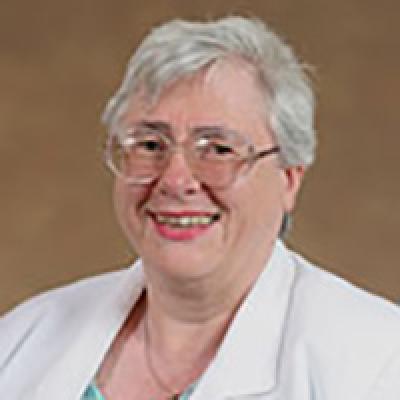
Dr. Gail Galasko earned her Ph.D from Queen Mary College University of London. Research in the Galasko Lab is focused on understanding the mechanism of action of insulin and what causes the insulin resistance found in type 2 diabetes mellitus. They have isolated 2 small compounds which act as second messengers in the insulin signaling pathway, and a third which inhibits insulin action. Her hypothesis that these compounds have an important physiological role in the maintenance of normal blood sugar, and that lack of the insulin second messengers is an important factor in diabetes and its complications. She believes that findings from her studies will have important implications in understanding of and developing new treatments for diabetes.
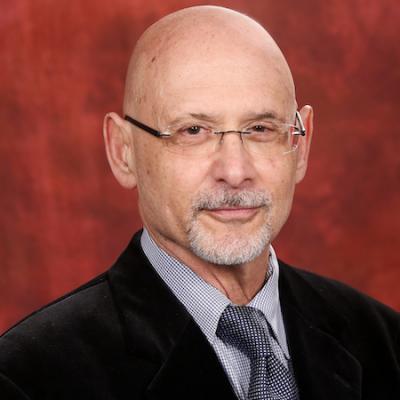
Dr. Robert Glueckauf is Professor of Behavioral Sciences and Social Medicine in the College of Medicine. He received his B.A. in Psychology from the University of Florida and his Ph.D. in clinical psychology from Florida State University. Prior to returning to FSU in 2003, he served as Professor and Director of the Center for Research on Telehealth and Healthcare Communications at UF. Earlier in his career, he was Director of Clinical Training in the Department of Psychology at the Purdue School of Science at Indianapolis.
Professor Glueckauf is also former president of the American Psychological Association’s Division of Rehabilitation Psychology and a fellow of the American Psychological Association. He has written more than 125 empirical and theoretical articles, books and chapters in the fields of telehealth and rehabilitation psychology. He has had continuous grant funding since 1992 from the National Institute on Disability and Rehabilitation Research, National Institutes of Health, Health Resources and Services Administration, Department of Veterans Affairs, Robert Wood Johnson Foundation, as well as other public and private sources.
His research interests lie in the development, evaluation and dissemination of culturally-responsive, telecommunication-mediated interventions for individuals with chronic health conditions and their family care partners, outcomes measurement, and spirituality and health.
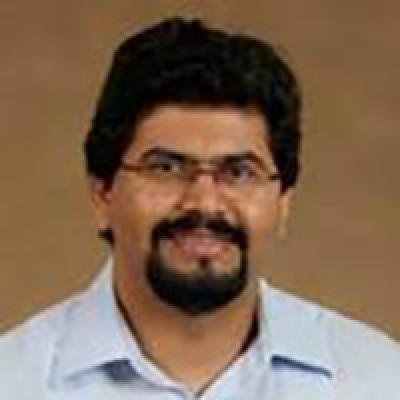
Dr. Akash Gunjan is a research scientist trying to understand how chromatin structure and its components such as histones contribute to the maintenance of genomic stability, especially in response to DNA damage, using yeast and human cells in culture. Genomic instability is a hallmark of cancer cells and is also associated with aging. An important aging related project in Dr. Gunjan’s lab is to evaluate the role of individual histone genes and rDNA metabolism in aging using the budding yeast as a model system. Overall, Dr. Gunjan’s research will improve our understanding of the basic mechanisms underlying cancer and cellular aging. Apart from research, Dr. Gunjan is involved in teaching various graduate level courses that draw upon his expertise in the fields of chromatin biology, molecular biology, biochemistry, genetics and epigenetics. Dr. Gunjan also facilitates small group sessions in Medical Biochemistry and Genetics, Microanatomy, Microbiology, Pathology, Pharmacology and Physiology for first and second year medical students.
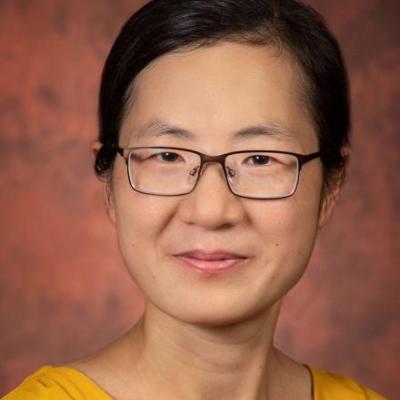
Dr. Yang Hou is an Assistant Professor in the Department of Behavioral Sciences and Social Medicine in the College of Medicine at Florida State University and the PI of the Development, Equity, and Resilience (DEaR) Lab. Dr. Hou earned her Ph.D. from the University of Texas at Austin. Broadly, her research centers on how environmental and biological factors influence the neurobehavioral (cognitive, academic, socioemotional, behavioral) development of individuals in underrepresented groups such as ethnic minorities and families with neurofibromatosis type 1 (NF1). Her current primary line of research aims to use innovative and advanced quantitative methods to provide a more comprehensive understanding of the patterns and predictors of neurobehavioral development of individuals with NF1 across the lifespan. Her research has been funded by the USA Department of Defense and the Children’s Tumor Foundation. She also received multiple international awards, for example, Rising Star from the Association for Psychological Science and Early Career Outstanding Paper Award from the American Psychological Association.
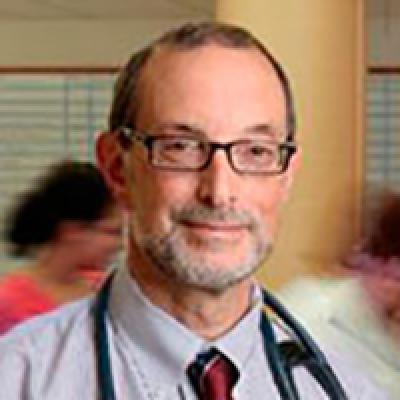
Dr. Paul Katz is a widely published author and noted speaker on aging issues. He graduated with an M.D. from the University of Michigan, where he was a member of Alpha Omega Alpha Medical Honor Society, and completed a geriatric medicine fellowship from SUNY Buffalo at the VA Medical Center in Buffalo, N.Y. Dr. Katz is a Professor and Chair of the Department of Geriatrics, and is currently leading research on The North and Central Florida Geriatrics Workforce Enhancement Partnership, a partnership between FSU, community-based primary care, and community based education organizations.
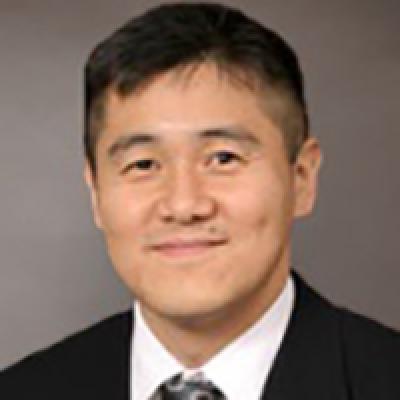
Dr. Choogon Lee obtained a B.S. from Seoul National University in South Korea. He attended Rutgers University, where he obtained his Ph.D. in microbiology and molecular genetics in 1999. He currently studies the molecular basis for Circadian rhythms.
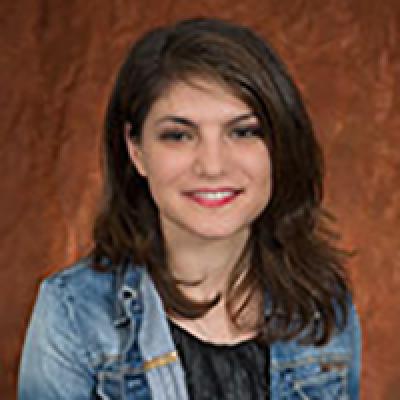
Dr. Martina Luchetti is an Assistant Professor in the Department of Behavioral Sciences and Social Medicine at Florida State University College of Medicine. She earned her Master’s Degree in Clinical and Community Psychology in 2009 and her Ph.D. in Psychological Sciences (Clinical Psychology) in 2015 at the University of Bologna, Italy.
Her research interests focus on identifying psychological and social factors associated with memory function and aging processes in middle and later adulthood. Specifically, her work examines the role of loneliness and its connection to the risk of dementia and cognitive impairment, as well as relational factors impacting dementia and older adult caregiving.
View Profile

Dr. Timothy Megraw received his Ph.D. in Biochemistry from the University of North Carolina at Chapel Hill. He investigates the functions of centrosomes and cilia in cell division, development and disease. This includes asymmetric division of stem cells, the regulation of centrosomal and other microtubule-organizing centers (MTOCs), metabolic disorders due to loss of centrosome proteins, and regulation of primary cilium assembly and function. Dr. Megraw’s lab uses Drosophila, mouse, and human cell culture models.
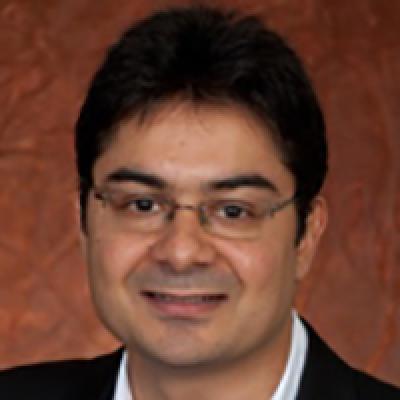
Dr. Jose Pinto earned his Ph.D. in 2006 from the Federal University of Rio de Janeiro. His research of study was Muscle Biochemistry and Biophysics. He researched as a postdoctoral scholar from 2006 to 2010 at the University of Miami, Miller School of Medicine, under the mentoring of Dr. James D. Potter. His postdoctoral research focus was on the Molecular Mechanisms of Inherited Cardiomyopathies. In 2010, Dr. Pinto became a research assistant professor until he joined the FSU College of Medicine’s Biomedical Sciences Department in 2011.
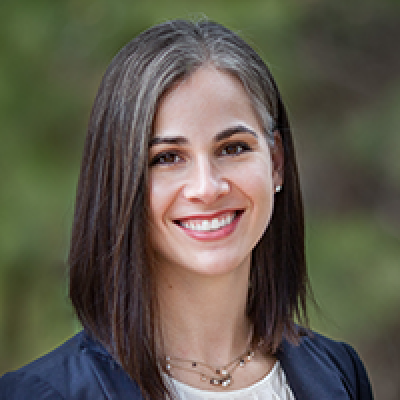
Dr. Emily Pritchard earned her Ph.D. in Biomedical Engineering from the University of Tennessee, Knoxville. She is currently studying vascular disease and cognitive disorders in older adults, focusing on new diagnostics and treatment paradigms at the College of Medicine’s Department of Biomedical Sciences.
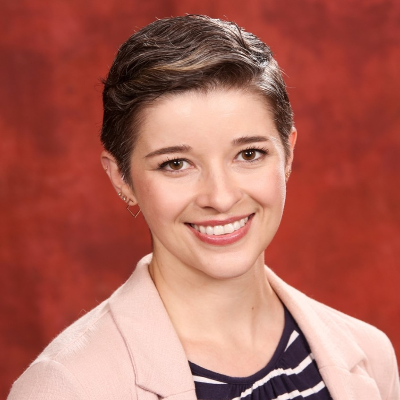
Dr. Julia Sheffler is an Assistant Professor at the College of Medicine’s Center for Translational Behavioral Science. She earned her Ph.D. in Clinical Psychology from Florida State University in 2018. Her research broadly involves the development and assessment of behavioral interventions for chronic conditions, with an emphasis on Alzheimer's disease and dementia risk reduction. Dr. Sheffler's lab currently focuses on developing scalable community lifestyle programs that help older adults make sustainable changes to their lifestyle, supporting healthy brain aging.
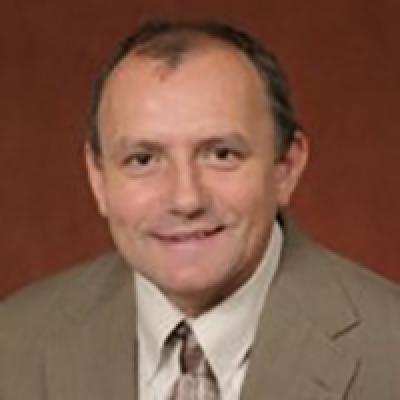
Dr. Branko Stefanovic joined the faculty of the FSU College of Medicine in August 2002 after serving for eight years as a research assistant professor in the Division of Digestive Diseases and Nutrition in the Department of Medicine at the University of North Carolina – Chapel Hill. After earning his doctorate in molecular biophysics at FSU in 1991, he did post-doctoral training at the University of Bern in Switzerland. Dr. Stefanovic is a tenure track scientist who conducts research in the area of molecular mechanisms of liver fibrosis. He also teaches and facilitates small groups in pharmacology, biochemistry and physiology.
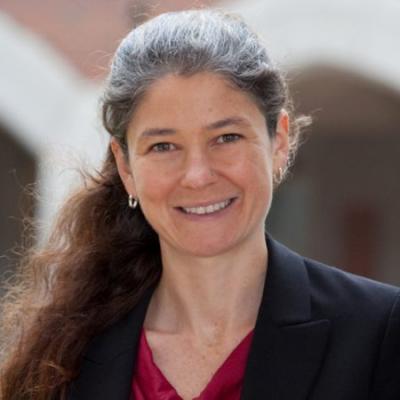
Dr. Angelina Sutin earned her Ph.D. in Psychology at the University of California, Davis, and did a postdoc at the National Institute on Aging before joining FSU's College of Medicine. Her work takes an intergenerational lifespan approach to address how psychological factors contribute to health and well-being.
Professor Sutin's lab currently focuses on the role of personality traits in cognitive aging and risk of Alzheimer’s disease and related dementias.

Dr. Antonio Terracciano received his doctoral degree from the Seconda Università degli Studi di Napoli and Università degli Studi di Cagliari. Before joining the Department of Geriatrics, Dr. Terracciano was a staff scientist at the National Institute on Aging, NIH. His research focuses on how psychological traits and genetic factors contribute to physical and mental health across the lifespan. Dr. Terracciano uses longitudinal and cross-cultural methodologies to examine changes in traits with age, from adolescence to older adulthood.
Dr. Terracciano has also led and participated in large collaborative genome-wide association studies to identify common genetic variants associated with personality traits, depression, and cigarette smoking. His research aims to individuate factors that contribute to health and longevity, by reducing health risk behaviors and promoting resilience against diseases of aging, such as Alzheimer’s disease.
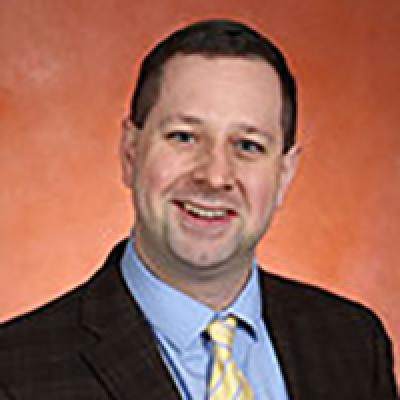
Dr. Robert J. Tomko Jr. earned his Ph.D. from the University Of Pittsburgh School Of Medicine and completed an American Cancer Society Postdoctoral Fellowship in the Department of Molecular Biophysics and Biochemistry at Yale University. His lab probes the basic mechanisms that underpin failure of the cell’s protein quality control machinery in aging-associated protein misfolding diseases such as Alzheimer’s, Parkinson’s, and type II diabetes.
College of Music
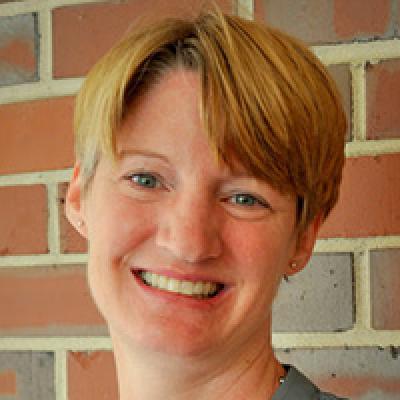
Dr. Lori Gooding, Ph.D., MT-BC, is Assistant Professor of Music Therapy. Her clinical background includes music therapy in mental and physical healthcare and her research has focused on music therapy in psychosocial care, patient-and family-centered care in music therapy, and music therapy education. Her publications appear in journals like the Journal of Music Therapy and Music Therapy Perspectives.
Dr. Gooding is President Elect of the American Music Therapy Association. She has presented nationally and internationally, and currently serves on the editorial board for the Journal of Music Therapy. She has also received research grants from organizations like AARP, the National Institute on Aging, The Awesome Foundation, and the Florida Division of Cultural Affairs.
College of Nursing

Dr. Laurie Abbott earned her Ph.D. from Florida Atlantic University. Her research program involves health promotion and prevention of chronic disease presentation, progression, and exacerbation.
As a board-certified advanced public health nurse, Dr. Abbott has conducted two cluster randomized trials that tested culturally relevant evidence-based health promotion and disease risk reduction interventions in rural community settings. She has also explored protective and contributory factors of disease including acute and chronic stress, social support, and resilience.
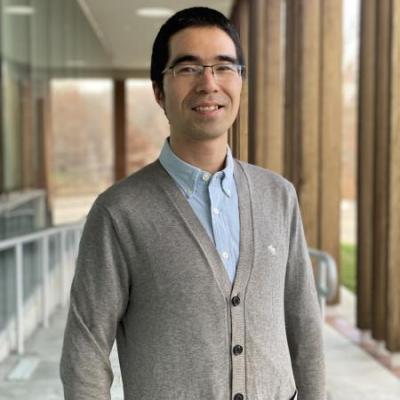
Dr. Jie Chen is an assistant professor at the Florida State University College of Nursing. His research projects focus on pain and symptom management in older adults with multiple chronic conditions (MCC), i.e., cancer and cardiovascular disease. He is also interested in promoting cardiovascular health of older adults with cancer. His long-term research plan is to develop a comprehensive understanding of the bio-behavioral and multi-omics mechanisms of pain and pain self-management among older adults with MCC. His dissertation titled “Pain Management in Older Adults with Heart Failure” was supported by the American Nurses Foundation from the Virginia Stone Fund, the Eastern Nursing Research Society (ENRS)/CANS dissertation award, and the STTI Mu Chapter research award.
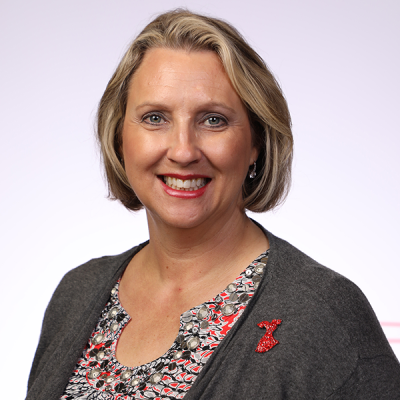
Dr. Lucinda J. Graven earned her Ph.D. from the University of Alabama at Birmingham in 2014. She conducts research in heart failure patients and their caregivers. Her current research focuses on the development and testing of coping interventions to improve physiological and psychological health and well-being in these populations. She has expertise in cardiovascular health, social problem-solving, social support, and community-based interventions. Dr. Graven also conducts research related to heart failure symptom science and instrument development.
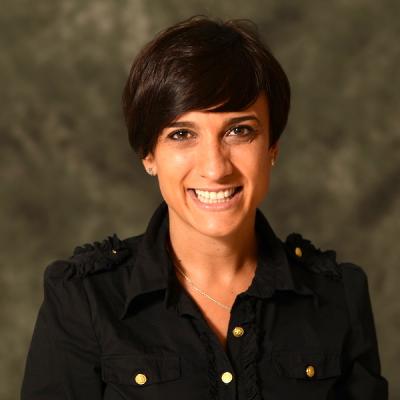
Dr. Geraldine Martorella is an associate professor in the College of Nursing. She earned her Ph.D. from the University of Montreal (Canada) and was a postdoctoral fellow at McGill University (Canada). Her program of research consists in developing and evaluating innovative non-pharmacological interventions for pain management and chronic pain prevention. Using experimental and mixed method designs, she focuses her research on psychosocial factors of pain, the use of information technologies, and complementary and alternative therapies.
Dr. Martorella currently is a member of the American Psychological Association’s Guideline Development Panel for the Treatment of Chronic Musculoskeletal Pain in Adults. She is also a Fellow of the American Academy of Nursing.
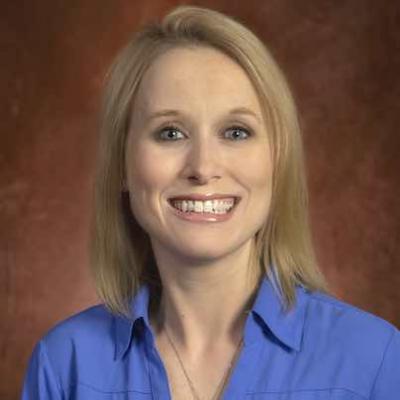
Dr. Mia Newlin-Bradner, Ph.D., R.N., M.S.N., is Assistant Professor in the College of Nursing. Dr. Newlin-Bradner’s initial educational pursuits were in the field of exercise physiology, in which she received a B.S. from Florida State University, an M.S. from the University of Georgia and a Ph.D. from Florida State University. She then expanded her education to the field of nursing and obtained her B.S.N. from FSU followed by an M.S.N. in Nursing Education, also from FSU.
Dr. Newlin-Bradner’s research interests are focused on the role of physical activity in the prevention and management of chronic disease, with a specific emphasis on women with heart failure with preserved ejection fraction.

Dr. Hyejin Park, Ph.D., RN, is an associate professor at the Florida State University College of Nursing. She has authored numerous peer-reviewed research articles that focus on caregivers of individuals with dementia and other vulnerable populations. Dr. Park has also presented her research at various national and international conferences, highlighting her expertise and commitment to advancing the field of nursing and healthcare.
In addition to her research, Dr. Park serves as a paper reviewer for prestigious journals, including the Journal of American Medical Informatics Association, which underscores her strong standing and recognition within the academic community. Her multidisciplinary research leverages artificial intelligence technologies to enhance care for Alzheimer's patients and their caregivers, including those managing care from a distance. Dr. Park's recent collaborative study focuses on patient-centered approach aims to thoroughly understand the needs and perspectives of both patients and their caregivers within the framework of technology-enabled care.
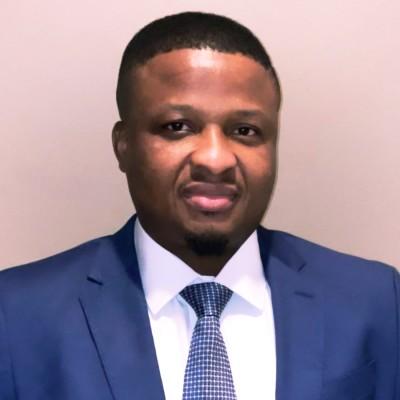
Dr. Kofi Sorkpor, Ph.D., MPH, RN, is an assistant professor in the College of Nursing. The fundamental premise of his research is health equality, with particular emphasis on health promotion interventions for underserved and marginalized groups, including older adults and members of racial and ethnic minorities. His research focuses on community-based strategies for managing chronic health conditions, such as pain, using approaches that include but are not limited to technology in the form of wearables, smartphone-based mobile applications, and other consumer-facing devices to provide chronic condition management to people in their natural settings with little to no disruption to their daily lives.
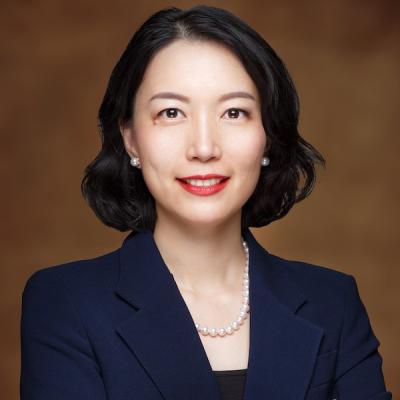
Dr. Jing Wang, Ph.D., MPH, RN, FAAN, is Dean and Professor in the College of Nursing and Adjunct Professor in Biomedical Informatics and Public Health at the University of Texas Health Science Center at Houston.
Her research uses mobile and connected health technologies to optimize multiple-behavior lifestyle interventions and improve patient-centered outcomes among the chronically ill and aging populations with multiple chronic conditions, especially among the rural, underserved, and minority populations. Recently, she led interdisciplinary research that uses artificial intelligence to develop health care data analytics methods to characterize the dynamic pathways to the emergence of common multiple chronic conditions in minority populations and optimize multiple-behavior intervention through smart and adaptive clinical trials. She is the editorial board member of The Diabetes Educator and the Editor-in-Chief of JMIR Aging.
She’s an elected Fellow of the American Academy of Nursing, 2013 Robert Wood Johnson Foundation Nurse Faculty Scholar, 2015 TEDMED Scholar, 2016 Josiah Macy Jr. Foundation Macy Faculty Scholar. As a Health and Aging Policy Fellow and American Political Science Association Congressional Fellow, she works with Centers for Medicare & Medicaid Services (CMS), and serves as a Senior Scientific Advisor to Agency for Healthcare Research and Quality (AHRQ). She’s selected as the 2021-2024 National Academy of Medicine Emerging Leader in Health and Medicine.
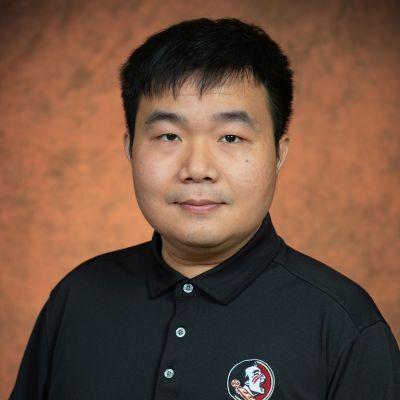
Dr. Yijiong Yang's research is focused on enhancing healthcare outcomes for aging populations and individuals with chronic conditions, particularly Alzheimer's disease and related dementias (ADRD), diabetes, and fall-related injuries. His work leverages statistical analysis, cost-effectiveness analysis, and machine learning — particularly natural language processing — to develop predictive models utilizing electronic health records (EHR) and claims data. By integrating public health and nursing perspectives, Dr. Yang's research aims to improve disease prevention, management strategies, and healthcare delivery systems. With extensive experience in grant development, interdisciplinary collaborations, and data-driven research, his goal is to generate actionable insights that inform public health policies and clinical practices, ultimately advancing care for aging populations.
College of Social Sciences and Public Policy
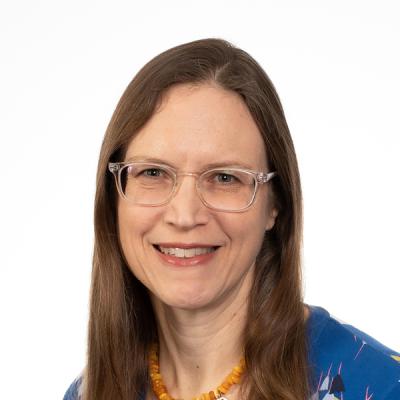
Anne Barrett, Ph.D., is Professor of Sociology and faculty associate of the Pepper Institute on Aging and Public Policy. Her research interests include gender and aging, subjective aging, ageism, and cultural constructions of later life.
Dr. Barrett received her Ph.D. in Sociology from Duke University.

Dr. Timothy S. Chapin is Dean of the College of Social Sciences and Public Policy and a professor of Urban and Regional Planning. Prior to stepping into the interim dean’s role in May 2016, he served a six-year term as chair of the Department of Urban and Regional Planning and two years as Associate Dean for Development for the college. Since joining FSU in 1999, Chapin has undertaken research on the effectiveness of Florida’s growth management system and the role of sports facilities in the promotion of urban redevelopment. He is a noted expert on land use and comprehensive planning, growth management, and urban redevelopment. Chapin’s current research interests revolve around how Florida’s demographic trends influence urban patterns and transportation systems in the state. Over his career he has secured more than $3 million in outside funding from federal, state, and local governments to support his research.
Chapin also serves as the Senior Associate Editor and Review Editor for the Journal of the American Planning Association. He holds a BA in Sociology from Emory University, a Master’s in City and Regional Planning from the Georgia Institute of Technology, and a Ph.D. in Urban Design and Planning from the University of Washington.
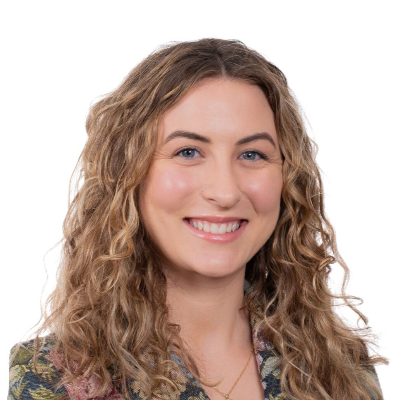
Dr. Amber DeJohn is a health geographer studying the interaction between built environments, technology, and their impact on loneliness and health, particularly among older adults. Using both quantitative and qualitative methodologies, including Fitbit data, surveys, interviews, and time-use data, Dr. DeJohn’s research focuses on how urban environments affect social interactions and healthy aging. Recent work has examined the effects of the COVID-19 pandemic on migrant older adults in the Greater Toronto Area, contributing to the understanding of mobility and technology’s roles in socializing within urban spaces. Since joining FSU, Dr. DeJohn has focused on Florida’s unique context, collecting data on older adults’ mobility and social isolation, with plans for future studies on extreme heat coping behaviors and the ethics of care in nursing homes. Additionally, Dr. DeJohn founded the Geographies of Aging and the Life Course (GOAL) working group to advance geographic methods in aging research, organizing sessions and networking opportunities to support grantsmanship and research development.

Dr. Michael Duncan is an Associate Professor in the Department of Urban and Regional Planning in the College of Social Sciences & Public Policy. He received his Ph.D. from the University of California, Berkeley. His research and teaching focus on sustainable transportation planning that mitigates environmental impacts and improves social equity. This includes research that focuses on providing better transportation options for older adults.
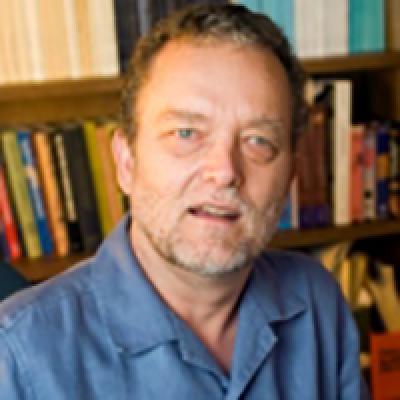
Dr. R. Mark Isaac is the John and Hallie Quinn Eminent Scholar and Department Chair of Economics at Florida State University. He received his Ph.D. in Social Science from Caltech in 1981 and taught for many years at the University of Arizona before moving to Tallahassee in 2001. He is the author of numerous journal articles and book chapters, which can be found on his website at mailer.fsu.edu/~misaac. His research interests are in laboratory experimental evaluation of issues in public goods provision, auction and mechanism design, and decision making under risk and uncertainty. He is a co-author (with Daniel Friedman, Duncan James, and Shyam Sunder) of the book Risky Curves: On the Empirical Failure of Expected Utility (Routledge, 2014).

Dr. Miles Taylor earned her Ph.D. from Duke University in 2005 and is Professor of Sociology. Dr. Taylor’s research primarily focuses on racial and educational disparities in physical and mental health trajectories in later life. Her recent work also involves the application of complementary statistical techniques to analyze trajectories across the life span. Other research interests include the impact of family and relationship factors on health and the association between psychological resilience and health across the life course.
College of Social Work

Dr. Amy Ai earned her Ph.D. in Psychology and Social Work, and was a National Institute on Aging postdoctoral fellow at the University of Michigan in 1996. Her current interests involve Gerontology, Health Disparities, Cultural Diversity, Behavioral intervention, Mindfulness, Mental Health, Spirituality, as well as Stress and Coping. In her previous services, she was a Gubernatorial Appointee of the former Washington State Governor as a board member on the Washington State Council on Aging and an At-large Delegate and Representative of Academic Settings to the 2005 White House Conference on Aging. Dr. Ai is Fellow of the GSA, APS, and APA Div. 20, 36, 38, as well as a Hartford Geriatric Faculty Fellow.

Dr. Katy (Qiuchang) Cao is an assistant professor at the College of Social Work and a faculty associate of Pepper Institute on Aging and Public Policy. Dr. Cao received her Ph.D. in social work from the Ohio State University with a focus on aging and health. Her scholarship centers on improving the physical, mental, cognitive, and social health of older adults using qualitative, quantitative, mixed-methods, and network analysis. Her scholarship on Age-friendly Communities highlights the importance of the community’s social/built environment in the health and well-being among older adults. She also conducts secondary data analysis of nationally representative datasets (e.g., Health and Retirement Study) to examine the social mechanisms (e.g., education, employment) across the life course that contribute to health disparities among older adults.
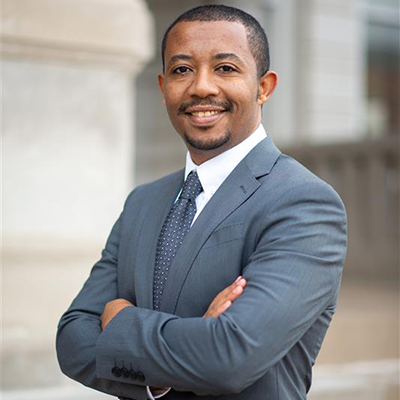
Dr. Gashaye Melaku Tefera is an Assistant Professor at the College of Social Work. His research focuses on healthcare access and health disparities among underserved and disadvantaged communities, including immigrants, refugees, and older adults. His work explores the use of technology to promote independent living among older adults, analyzing how they engage with technology to monitor vital health information. Moving forward, Dr. Tefera aims to investigate the unique challenges faced by older adult immigrants, a critically underserved population. As a faculty affiliate, he looks forward to collaborating with interdisciplinary researchers to develop projects that enhance the well-being of immigrant older adults in the U.S.
FSU Claude Pepper Center

Dr. Dawn C. Carr is a Professor of Sociology and Director of the Claude Pepper Center. She received her Ph.D. in Social Gerontology and Master’s in Gerontological Studies at Miami University and her Bachelor of Arts in Music Performance at Arizona State University. Dr. Carr’s expertise lies in understanding the factors that bolster older adults’ ability to remain healthy and active as long as possible.
Dr. Carr’s recent work focuses on understanding social, physical, cognitive, and psychological health in the context of major life transitions like retirement, disablement, widowhood, and caregiving.
FSU Office of Research
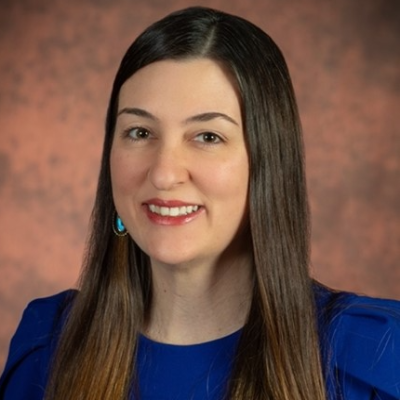
Dr. Rachel Goff-Albritton earned her Ph.D. from the University of South Florida, M.S. from the University of North Carolina in Chapel Hill, and B.A. from Florida State University in Communication Sciences and Disorders. Dr. Goff-Albritton serves as the Assistant Director of Research Development and Mentoring in the FSU Office of Research. She provides faculty researchers with guidance and resources in research career and professional development to support their individual research and creative activities.
Dr. Goff-Albritton is also a certified speech-language pathologist specializing in interventions and support for individuals with aphasia, a language disorder acquired after a stroke or brain injury.
Retired & Active
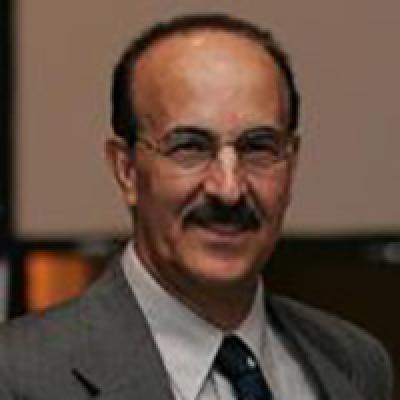
Dr. Bahram H. Arjmandi, Ph.D., R.D., is a Professor Emeritus in the Department of Nutrition and Integrative Physiology and the former Director of FSU's Center for Advancing Exercise and Nutrition Research on Aging. A registered dietitian, Dr. Arjmandi received his Ph.D. from the Department of Human Nutrition at Kansas State University, where he studied the effects of soluble fiber on sterol synthesis.
Although retired from full-time academic duties, Dr. Arjmandi remains highly active in research and continues to publish extensively. His current research focuses on women’s health, particularly issues related to osteoporosis, osteoarthritis, and cardiovascular health. He has received numerous honors for his research and mentorship, including the Abbott Nutrition Award in Women’s Health from the Academy of Nutrition and Dietetics, the Margaret Scruggs Award for Meritorious Research, the Regents Distinguished Research Award at Oklahoma State University, and the Distinguished Research Award at Kansas State University.
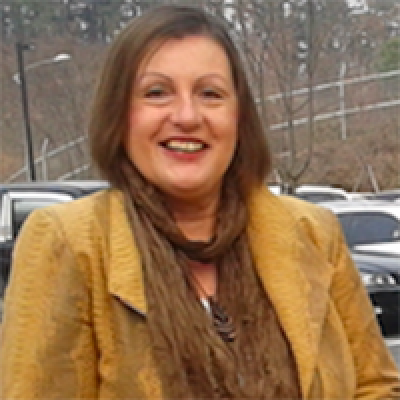
Dr. Jasminka Ilich-Ernst is a registered dietitian nutritionist (RDN) and Fellow of the American College of Nutrition (FACN). She is an inducted member of the Bosnian & Herzegovinian-American Academy of Arts and Sciences (BHAAAS). Dr. Ilich-Ernst earned her Ph.D. in Medicinal Sciences at The Ohio State University and the University of Zagreb, Croatia, and her master’s degree in Nutrition from the University of Utah.
Now retired from full-time faculty duties, Dr. Ilich-Ernst continues to be actively engaged in research and collaboration. She currently serves as a collaborating faculty member at the Center on Better Health and Life for Underserved Populations at FSU and as a visiting professor at the University of Zagreb, Croatia, and the University of Sarajevo, Bosnia & Herzegovina.
Dr. Ilich-Ernst’s research focuses on clinical studies in older women with nutritional interventions incorporating behavioral modification and physical activity to improve bone and body composition. She identified and coined the term “osteosarcopenic obesity syndrome,” which describes the simultaneous deterioration of bone and muscle tissues with adipose tissue expansion, now recognized globally. Her work also includes outreach to underserved communities to promote education and health interventions aimed at obesity prevention, cardiovascular risk reduction, and lifestyle improvement.












